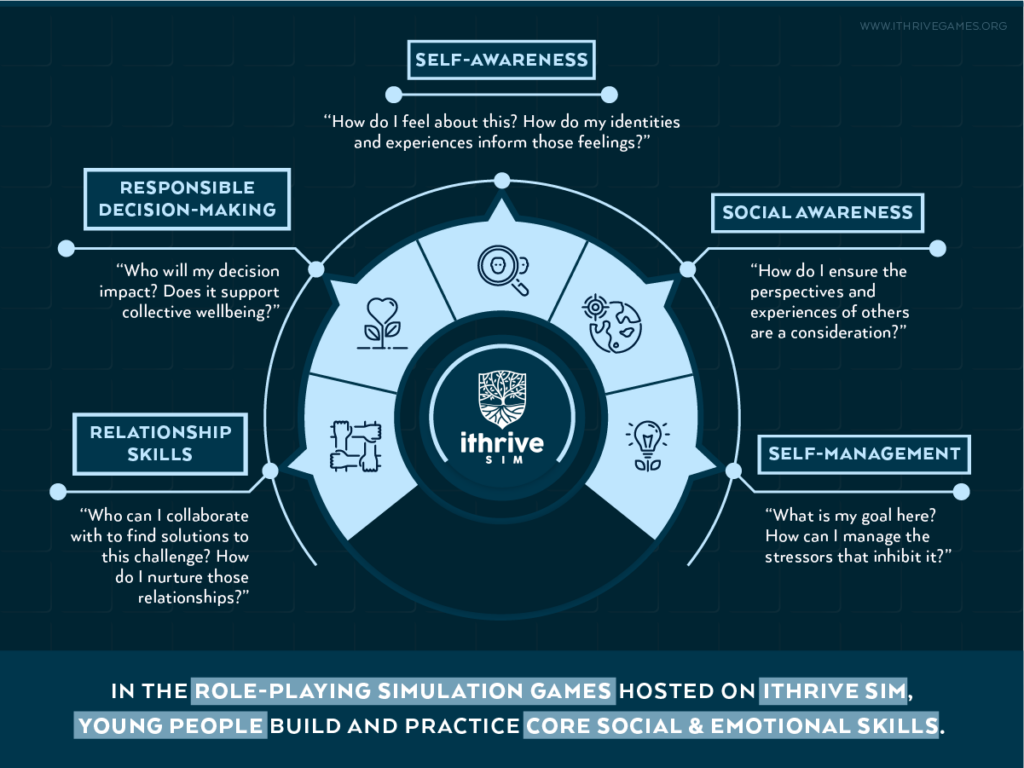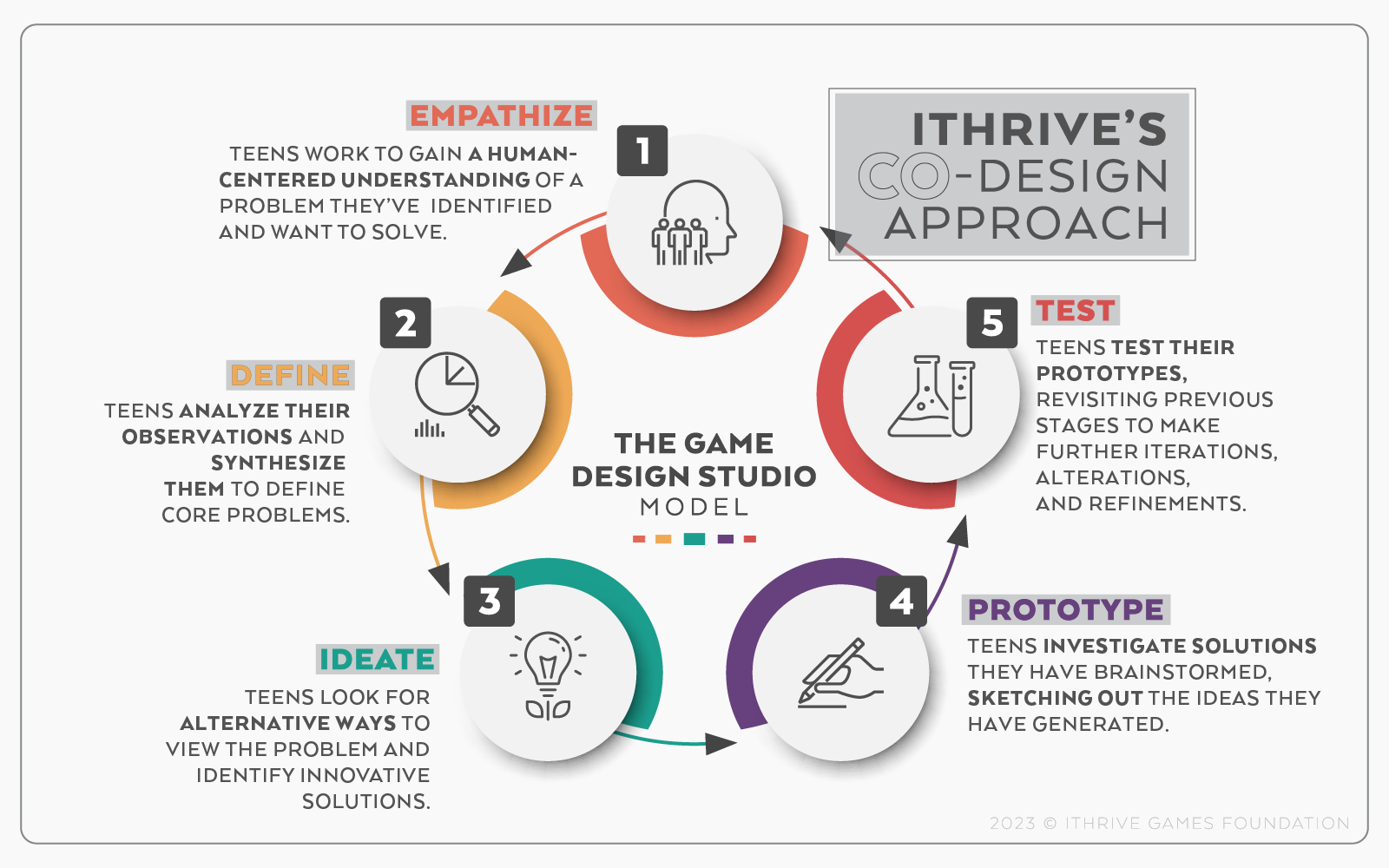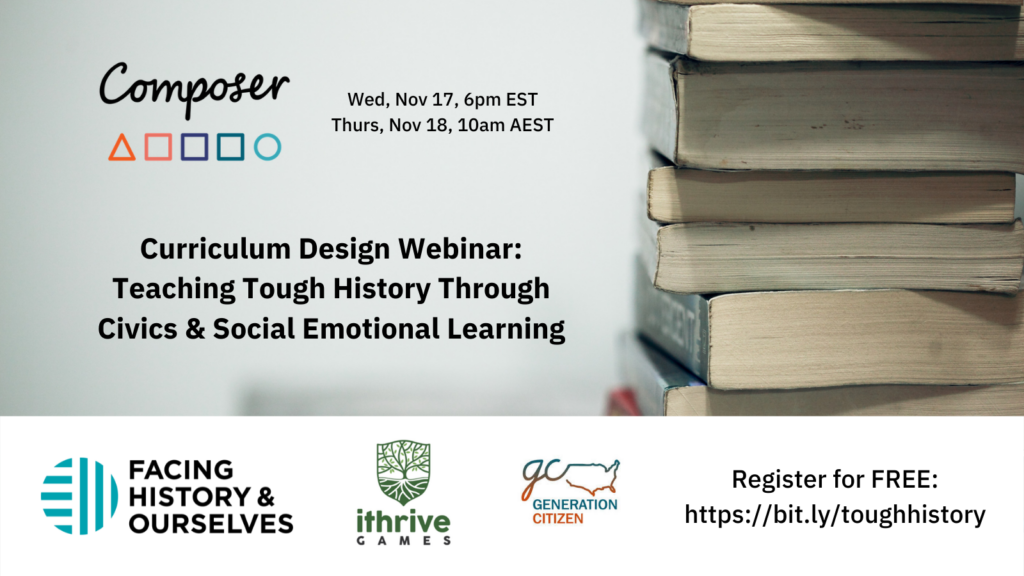Turning FEMA’s Lifeline Info Into an Immersive Game with iThrive Sim
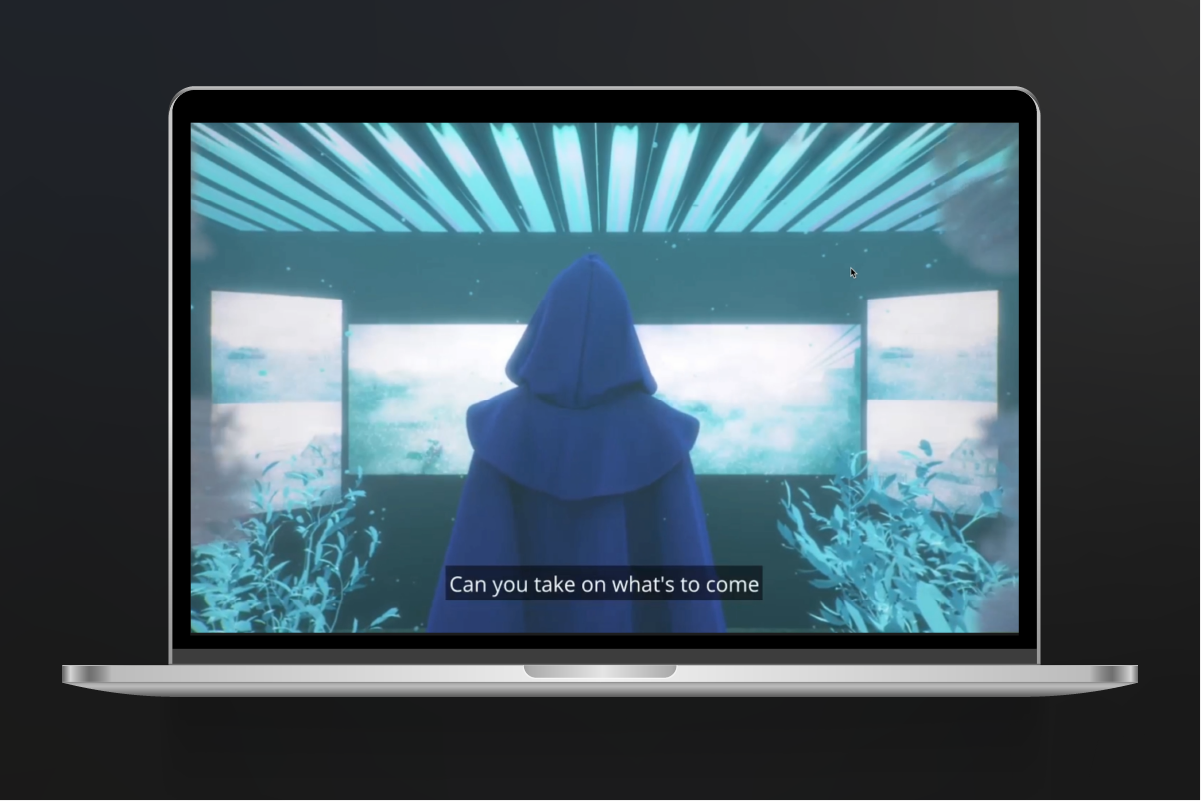
Young people feel the emotional weight of the world's challenges. They see the stories on their social media feeds and TV screens that bring forth questions, sometimes grief, and almost always hope for solutions that move us toward a world grounded in empathy, safety, and communal care.
Young people want to be a part of imagining and co-creating solutions that get us there, too, ones that bring forth better ways of being and doing that are supportive of their thriving and all our thriving. Teens and young adults already embrace and demand social action, according to the 2023 Deloitte Global Millennial and Gen Z Survey. Young and curious, they are instigators of change, with 83% saying they believe in their generation's power to inspire action in their local networks and impact societal problems, according to a 2020 CIRCLE Survey.
As agents of influence and drivers of transformation, young people wield within them a power to shape and steer both present and future. All in their learning ecosystem who believe in their genius and care about their thriving—from teachers to emergency management specialists—have a duty to nourish and honor that power.
For the Federal Emergency Management Agency (FEMA) Region 8 team, this duty led them to partner with the iThrive Games team to design and develop Disaster Mind, a disaster readiness and resilience-building game that meets young people where they are with play. Disaster Mind is a digital game designed to inspire social action toward community preparedness. Built and hosted on iThrive Sim, an award-winning game engine and development platform that creates and delivers role-playing simulations, Disaster Mind integrates live-saving information with interactive storytelling and an immersive play experience, actively connecting young people to knowledge that prepares them for disasters and activates them as movers and shakers capable of organizing their families, friends, and communities.
"We know that youth can be force multipliers in helping their families and households prepare for emergencies and disasters," shares Kirsten Maltese, the Youth and Adolescent Program Manager and a Community Preparedness Officer at FEMA Region 8. "[This] can spark a conversation with their friends and families but can also be a bridge between them and their local emergency management office. If we spark their curiosity and interest in preparedness at an early age, we can help them develop lifelong habits that will help them in their homes and communities."
A PLAN'S POWER: THE RESILIENCE PART OF DISASTER RECOVERY
Disaster preparedness is a silent sentinel that proves its power in times of chaos. It is core to disaster recovery. A proactive approach and an intentional mindset, reflected in historic taglines popularized by FEMA and on ready.gov like "Disasters don't plan ahead, you can" and "Prepare. Plan. Stay Informed," implore us to take action to reduce our vulnerability to disasters and increase resilience when they strike. "Disaster Mind gives potential survivors the opportunity to simulate real-life situations, " shares Daniel Nyquist, an Executive Officer at FEMA. "They make decisions that would lead to their eventual recovery." Here's how.
ITHRIVE SIM'S GAME-BASED LEARNING: A DIRECT-TO-YOUTH SOLUTION
Care in action means meeting young people where they are to support their thriving. In a world brimming with technology where over 600 million young people play video games, that includes leveraging play in spaces where they learn. Learning science shows that play has power; play supports engagement and can foster active learning through decision-making and problem-solving. In the months following the onset of the COVID-19 pandemic in 2020, as parents, guardians, and educators scoured for new virtual classroom and learning tools, many turned to play as a tool for connection and fun.
iThrive Sim launched in that same year as an accessible web-based and device-agnostic digital game engine capable of engaging young people in any educational setting or home with WiFi and a 1:1 device. The game engine delivers role-playing simulation games with integrated social and emotional skill-building. Players encounter unique stressors as they navigate challenges. They make real-time decisions that impact the unfolding narrative. With iThrive Sim, awarded for its learning engineering and design, we worked with the FEMA Region 8 team to build Disaster Mind, a single-player simulation game where players must navigate severe weather events, stay informed, and make decisions that impact how the story unfolds. The young people who play expand their understanding of disaster preparedness as they contend with unexpected weather events, manage its accompanying stress, and attempt to make the best decisions for the safety of themselves and their communities.
Disaster Mind has been both thought- and action-provoking for young people since its official launch on www.ready.gov this year. After playing, players express their motivation to get prepared, saying, "I should go home and make sure my family is prepared just in case something happens." Others shared in post-game focus groups that the simulation game expanded their sense of responsibility, opening them up to consider what it would be like to navigate a disaster without being accompanied by family or a trusted adult. The game is designed to activate and support young people's planning, involvement, and leadership in their community's preparedness efforts, core goals of the National Discovery Recovery Framework. "As young people navigate from support structures like their families and schools, we intend to help them prepare for their next phase in life," shares Maltese. "This type of engagement ahead of a disaster is what helps build resilience in communities - and we believe youth can be the driver of that."
THE SOCIAL AND EMOTIONAL SKILL-BUILDING IN DISASTER MIND
Vital to disaster readiness is prepping for the social and emotional. iThrive Sim's dynamic features are optimized to deliver experiential learning in a unique and developmentally nourishing way to teens. Disaster Mind is designed to be a social and emotional skill-building play experience that helps teens shift from an automatic mindset of "This won't happen to me" and "Other people will handle it" to an intentional mindset of "I may face an emergency at some point" and "I will think for myself".
Rather than prescribing learning, iThrive Sim encourages teens to make meaning of the content they encounter, allowing them to learn by doing and develop understandings that go beyond the surface knowledge of facts and information. Through a careful combination of game features and mechanisms that purposefully ignite feelings, teens are prompted to draw on their own experiences and skills while they make decisions. The game gives them opportunities to practice critical thinking, acquire and interpret information, and make real-time decisions while navigating challenges.
This active learning is transformative social and emotional learning.
WHAT A GAME LIKE DISASTER MIND CAN DO
The impact is in their testimonies.
Young people who've played the Disaster Mind simulation game walk away from it with a sense of ownership of the plan and investment in the outcomes, leading to greater participation and collaboration, too. "I've discussed with my family about disasters. We are making plans for them and intend on making them as clear and as direct as possible for everyone to stay safe during disasters," shared one of the first teens who tested Disaster Mind.
The scaffolded challenges, personalized feedback loops, and real-world applicable social and emotional skill-building that young people who play Disaster Mind experience makes them more familiar with the work of preparedness and the network- and community-wide planning and capacity-building efforts it entails.
"We often hear phrases like "if I only knew I would need..." or "I wish I had known that.." in the aftermath of disasters," says Nyquist. "Disaster Mind enables players to understand those needs in a safe and engaging setting before a disaster happens. This results in players being better prepared and equipped with information and strategies they need to maximize recovery resources and be resilient in their own recovery."
We knew that the effectiveness of Disaster Mind depended on young people wanting to play it. To ensure it would be engaging, relevant, and motivating for young people, we brought them into the design process using iThrive's as the participatory youth co-design approach. Their input shaped the story, the look and feel of the game, and the game mechanics. The impact and influence of Disaster Mind reflect the power of both co-design and game-based learning to engage young people in the work of inquiry, discovery, and reflection. Designed with collaboration and care and learning science, Disaster Mind animates and introduces life-saving strategies to agents of change and shapers for safe and resilient tomorrows: young people.
| |
PLAY THE DISASTER MIND SIMULATION GAME ON ITHRIVE SIM! 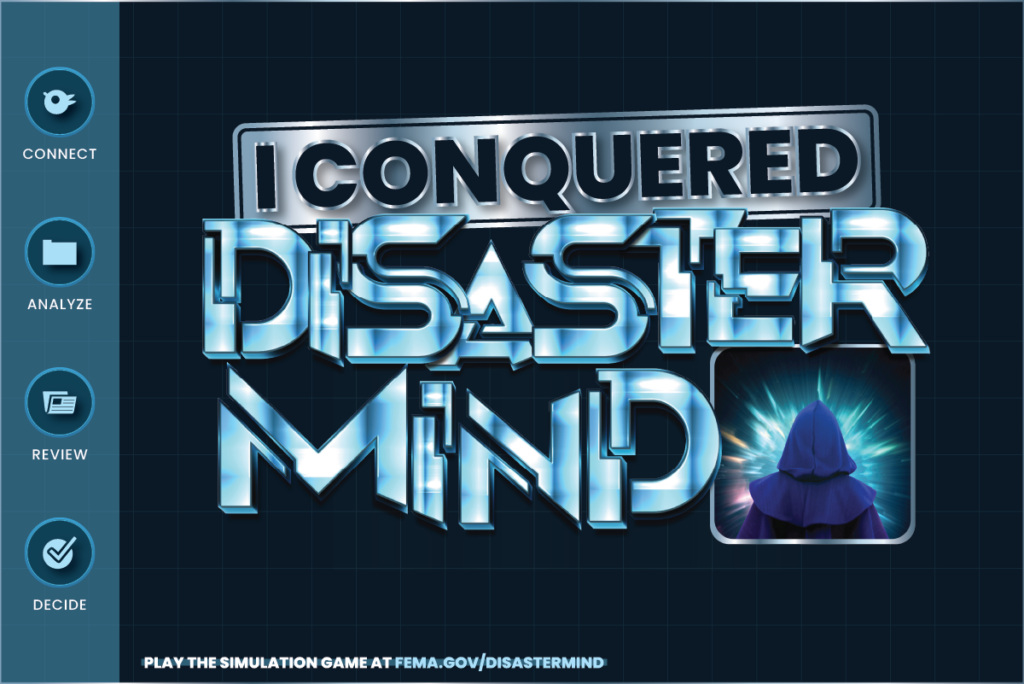 |
What is Power, and How Do We Get to Peace? Global Youth Have Answers.
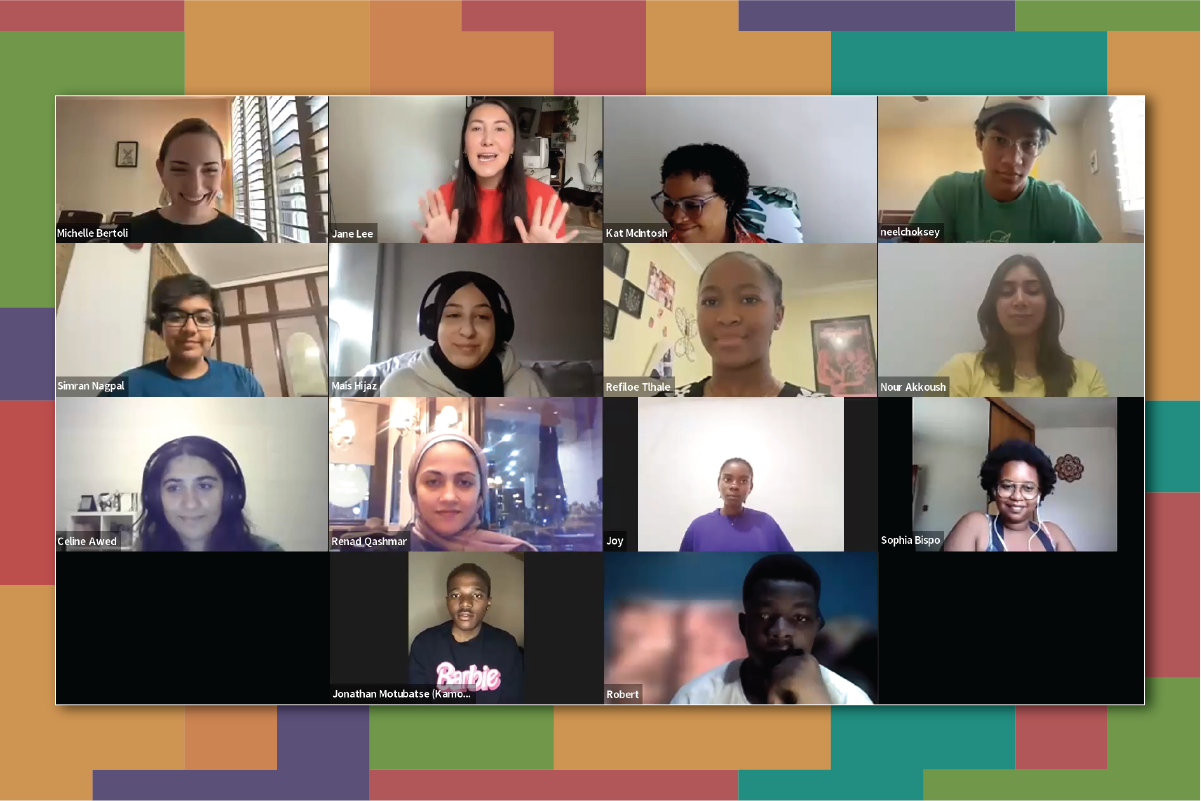
October 27, 1962, was a day that could have changed the course of world history.
That Saturday, the U.S.S. Beale dropped a series of non-lethal depth charges onto the B-59, a Soviet Union-operated and nuclear-armed submarine found near the U.S. blockade line around Cuba. Used to deter underwater warfare and intended as a warning, the charges sought to force the B-59 to the water's surface.
The captain aboard the B-59 had no way of knowing these were intended as warning shots. He had no contact from Moscow for several days, meaning no instruction, and after plummeting deeper into the waters to shield from the U.S. Navy's pursuers, his sub could not pick up or monitor radio traffic. Mistaking these warning shots as live explosives, the captain angrily convinced his men to arm the sub's nuclear-tipped torpedo and prepare for an attack under the belief that he was witnessing the start of World War III. If it had not been for the protocol that required all three of the B-59's senior officers to agree before initiating a nuclear launch, it could have been.
Though the captain was in favor, the sub's second in command refused to give consent. Instead, he calmed the captain down and coolly convinced his fellow officers to wait for Moscow's orders. His deliberate, careful action in a moment colored by fear and threat, real and perceived, eventually brought the B-59 back to Russia without incident. Most people did not know of his impactful decision until over 40 years later.
Like many events during the four decades of global political tension known as the Cold War, this close call signified the world's fragility at the time. The decision-making on the B-59 also mirrors how crucial the social and emotional were, as it motivated and underpinned every geopolitical move that could, if not made carefully, segue and cement doomsday.
Over the last year and with funding by the XQ Institute, the iThrive Games team has been co-designing Diplomacy in Action, a innovative learning experience (LX) that invites high school students in U.S. history classrooms to explore how the social and emotional show up in the intricacies of Cold War geopolitics. The co-design team includes The History Co: Lab's Fernande Raine, Ludic Learning's Paul Darvasi, Professor Jeremi Suri, the Mack Brown Distinguished Chair for Leadership in Global Affairs at The University of Texas at Austin, XQ's Matt Owens, and over 60 young people. Over the LX's six weeks, students are immersed in the Cold War. Through constructive and collaborative play and inquiry- and project-based learning, students assemble their historical insights and social and emotional skills into what becomes a Peacekeeper's Toolkit. As they step into their roles as U.S. diplomats to foreign countries in the LX's concluding iThrive Sim multiplayer simulation game experience, the Toolkit is their practical guide, helping them manage conflict alongside their peers. By the end of the game-based learning experience, students walk away with a deeper understanding of how fear and threat states impact decisions, of how power steers and shows up in global and domestic conflict, and real-time practice of critical thinking, responsible decision-making, and negotiation in tense times—social and emotional skills transferable to their real lives.
A CO-DESIGNED LX: BRIDGING INTENT WITH APPROACH
At iThrive Games, we firmly believe that empathy narrows the gap between intent and impact.
In the early envisioning of the Diplomacy in Action LX, our collaborative team of subject matter experts with backgrounds in history, adolescent development, social and emotional learning, serious game design, and game-based learning shared hopes of this LX being a memorable one for teens, intended to be interactive and deeply engaging for them. To ensure this, iThrive employed its strengths-based, co-design approach with teens and young adults, engaging them as thought and design partners throughout the LX's development.
Learn more about iThrive's co-design approach here.
Knowing we further our empathy through community and co-design, we made it a priority to create co-design contexts supportive of discovery for young people, ones that supported their emotional safety, challenged them cognitively, and helped them surface and express their ideas. By enlisting their expertise, genius, lenses, and experiences through co-design, the youth co-designers who've worked alongside us have been vital to helping make the LX all the more relevant to the teens it will reach.
WHAT GLOBAL YOUTH CO-DESIGNERS SAY
Co-designing with young people is always a joy, and last November, when the iThrive team gathered virtually with 16 teens and young adults living in more than a dozen countries, was no different. Through the Global Nomads Group, a nonprofit that connects youth across difference and distance, our design team met with interns from their Content Creation Lab across two sessions where they helped us co-design surrounding elements of the LX and playtest a prototype of its simulation game component.
Aligned with our intent to make this learning experience one that effectively considered power in multiple expressions and culturally responsive definitions of what power is, it was truly an honor to welcome a global lens in the creation of it. By interweaving it with the views and perspectives of young people from across the globe, the LX becomes even more resonant for the learners it reaches, reflecting both the diversity in today's world and the inclusion that will be central to it.
Here are a few of the takeaways from our last co-design session with the Global Nomads Group, marking some of our most memorable moments of knowledge-building and knowledge-sharing:
'US VS. THEM': UNPACKING POLARIZATION
Our design team, seeking to make the Diplomacy in Action LX applicable to the real world, invited young people to share their views on division and unity in today's world.

Their perspectives and thoughts helped our team think even more creatively about how to meet young people where they are in how they view polarization—a phenomenon that, throughout the Cold War and history, concentrated power in echo chambers and reinforced and exacerbated conflict.
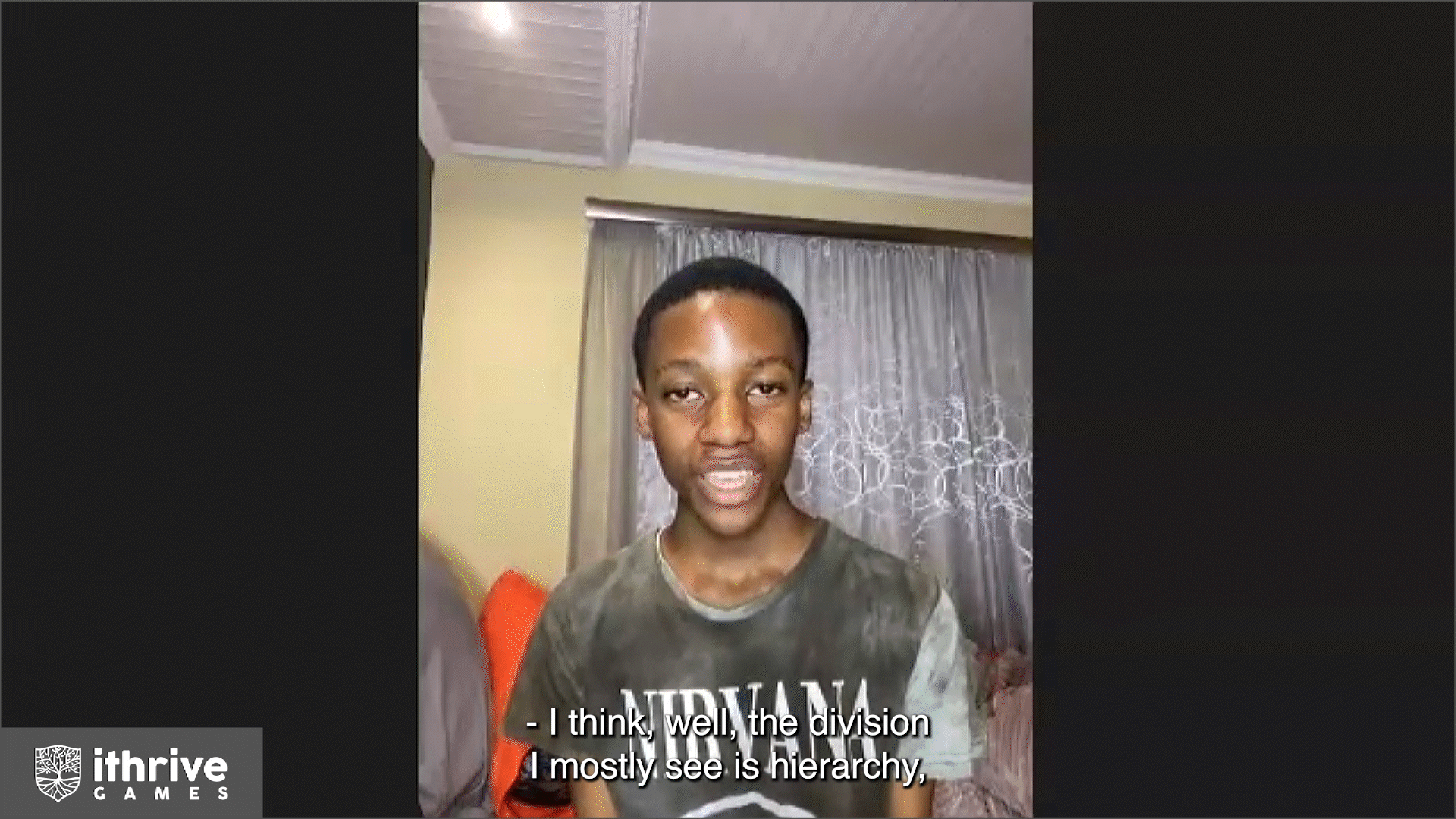
With their thoughts, our team expanded its operating understanding of powers' multiple expressions.
ASSESSING POWER OVER, POWER WITH, AND POWER TO
The 'Power Y' infographic appears frequently throughout the Cold War-inspired Diplomacy in Action LX and is a visual representation of three expressions of power—power over (meaning control), power to (meaning capability to do something), and power with (meaning shared power grown through partnership and collaboration).
To support the instructional design of a lesson plan for the LX that encouraged students to explore these expressions of power, our design team invited Global Nomads Group's youth interns to map and share how power manifests in their lives, communities, and screens.
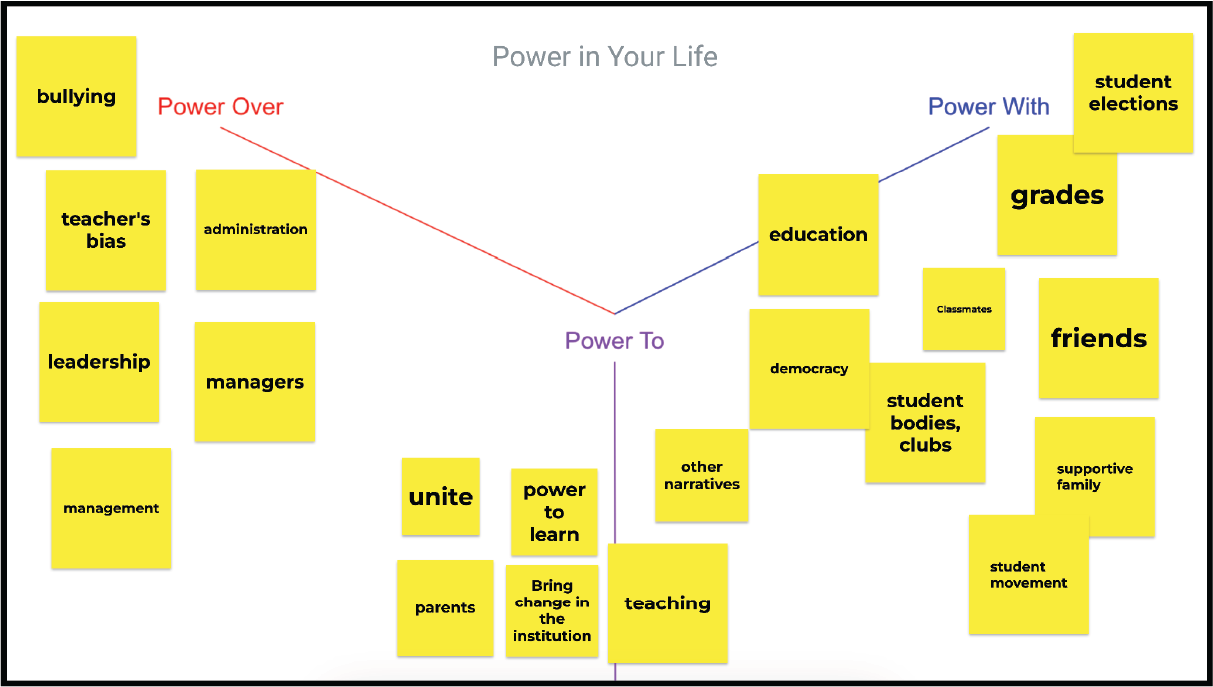

Their insights influenced how the LX prompts learners to plot power plays and chart diplomacy, using real-life examples to help them understand how power was expressed throughout the Cold War.
THE MAKINGS OF AND PATHWAYS TO PEACE
One of our favorite questions presented to youth co-designers throughout this LX's development prompts them to dive into the makings of peace. Our design team asked the group about the tools needed to combat division, manage conflict in today's world, and unite people across differences, much like Global Nomads Group's mission.
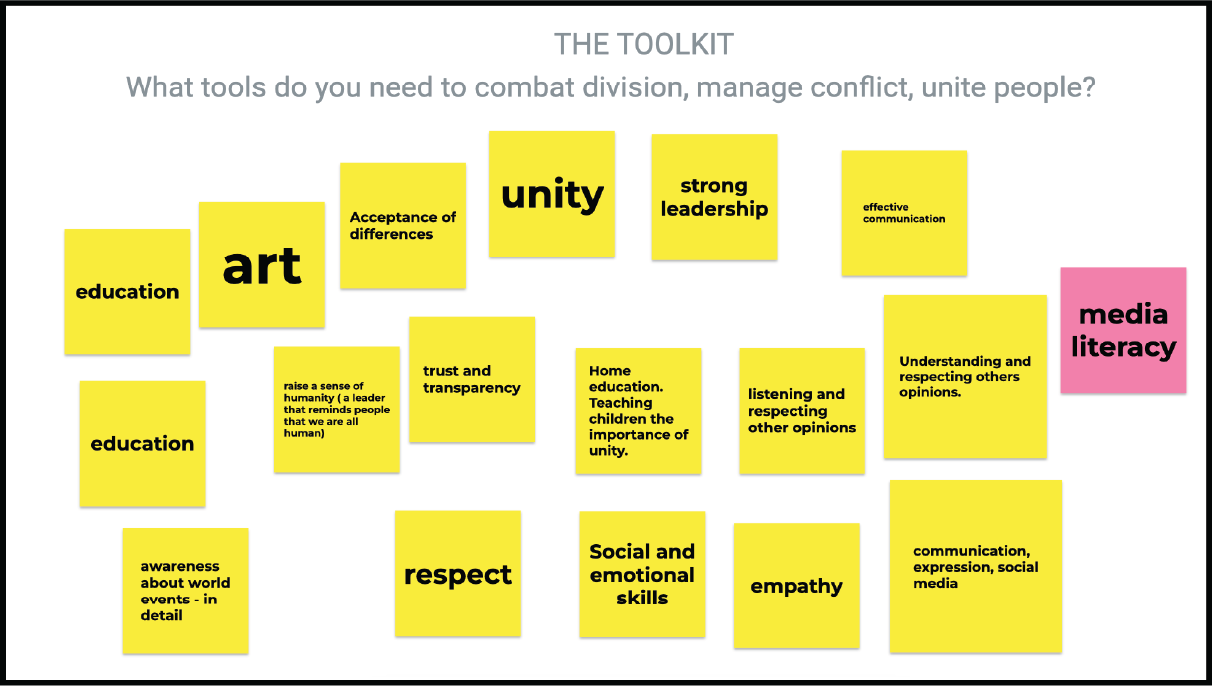
We asked the co-designers to convey what's needed at a micro and individual level and the tools leaders today need to make peace real. Many of their responses captured an array of skills, practices, and initiatives they viewed as necessary to achieve that goal.

From their thought partnership came directive and discernment on which surrounding elements were ultimately weaved into Diplomacy in Action's six-week LX of the many aspects of the Cold War that could've been included and explored. Their thoughts on what would be in a toolkit meant to support peace helped us shape the inquiry-based learning tracks throughout the LX, ensuring they align with what they view as vital to diplomacy today.
A special thank you to the young people at the Global Nomads Group, their facilitators, and all who joined us to help co-design Diplomacy in Action and co-create an offering reflective of ideas beyond our borders. Below, check out a highlight reel of the full co-design session, and sign up for iThrive's mailing list to be notified when the LX is available for piloting!
Making Civic Learning Meaningful With and For Young People

"Promising."
"Progressive."
"Unique."
"Revitalizing."
"Relief."
When Moiz, Tanisha, Ibad, Jaiden, and Samirah were asked to describe in one word the workshop they took part in with designers and museum educators from Educating for American Democracy's civic learning community earlier this month, the students from Thomas A. Edison CTE High School shared these, capturing how resonant and rewarding the co-design experience was for each of them.
Through iThrive's Game Design Studio, the playful, strength-based participatory design model that steered the afternoon workshop, the teens were engaged as equals and experts as they spent three-and-a-half hours vision-setting, imagining, and ideating alongside others in the civic education ecosystem. For the 17-year-olds, the collaborative space presented an opportunity rare in their worlds—a chance to share how they envision democracy and impact learning that supports the future of it. "[This] really gave me reassurance," shared Ibad. "There are people working to make our future better using our own opinions."
Brought together at the New York Historical Society by a project with Educating for American Democracy (EAD), an initiative working to reimagine history and civics education and make it a national priority, the students joined with iThrive Games, History Co:Lab, and Every Museum a Civic Museum, museum educators from Intrepid Museum, the New York Public Library, and the National Museum of American History, curriculum developers from Re-Imagining Migration, and graphic notetaker Aaron Mayper to create a versatile tool that supports the design and development of inquiry-based civic learning experiences.
Pairing the teens with learning-science-backed tools to help them mine their genius and craft playful solutions alongside peers and subject matter experts, iThrive's Game Design Studio model facilitated the day's knowledge-building and knowledge-sharing, setting the stage for meaningful co-creation. By the end of the workshop, we had a paper prototype of an interactive card game that animates and amplifies driving questions in EAD's Roadmap. With the session carried by teens' curiosity, creativity, and wisdom, the day was a testament to what teen-centered co-design can do and the impactful solutions it brings forth through radical collaboration.
CO-DESIGNING FOR MEANINGFUL CIVIC LEARNING
Civic learning supports both individual and collective thriving.
Studies conducted by the National Conference on Citizenship and researchers show that civic learning inspires socially responsible civic engagement, increasing a person's likelihood of voting. Beyond motivating the fulfillment of civic duties, when high-quality civic learning experiences prompt students to think critically about current socio-political events, students are more likely to engage in civil discourse with their peers. Despite this benefit, 92% of teachers are reported to shut down and stop conversations between students when argumentative or contentious.
There is a clear need for high-quality civic learning curricula that effectively supports inquiry and triggers curiosity in young people while accounting for what they and those who educate them experience. Only through radical collaboration and intentional partnership can we hit all the marks. The learning-science-backed Game Design Studio model brings both into shared spaces. Its use earlier this month at a synergetic workshop with HS students to create an interactive learning experience design tool reveals what the inventive and playful co-design method can do for civic education.
THE DESIGN CHALLENGE: BUILDING THE DECK
When teen and adult participants gathered at the New York Historical Society to co-create with each other, the goal of the session was clear—develop a resource that helps educators in all public spaces devise and design civic learning experiences that stimulate discussion, debate, reflection, and critical thought about American democracy. The resource needed to align with EAD's Framework and support the imaginations of educators and learning experience designers while being user-friendly and versatile enough for use across all grade levels.
Drawing inspiration from XQ Institute's competency cards, everyone in attendance knew early on that whatever we created together would, by design, support a rethinking of educational experiences. In this case, that meant enlivening civics and history in a communally defined and teen-centered way.
THE CO-DESIGN EXPERIENCE
The Game Design Studio (GDS) model was devised by social psychologists, accessibility experts, and learning scientists to create a supportive context for discovery where teens feel safe, seen, and heard, and where they connect about issues important and relevant to them (not just what adults think is important).
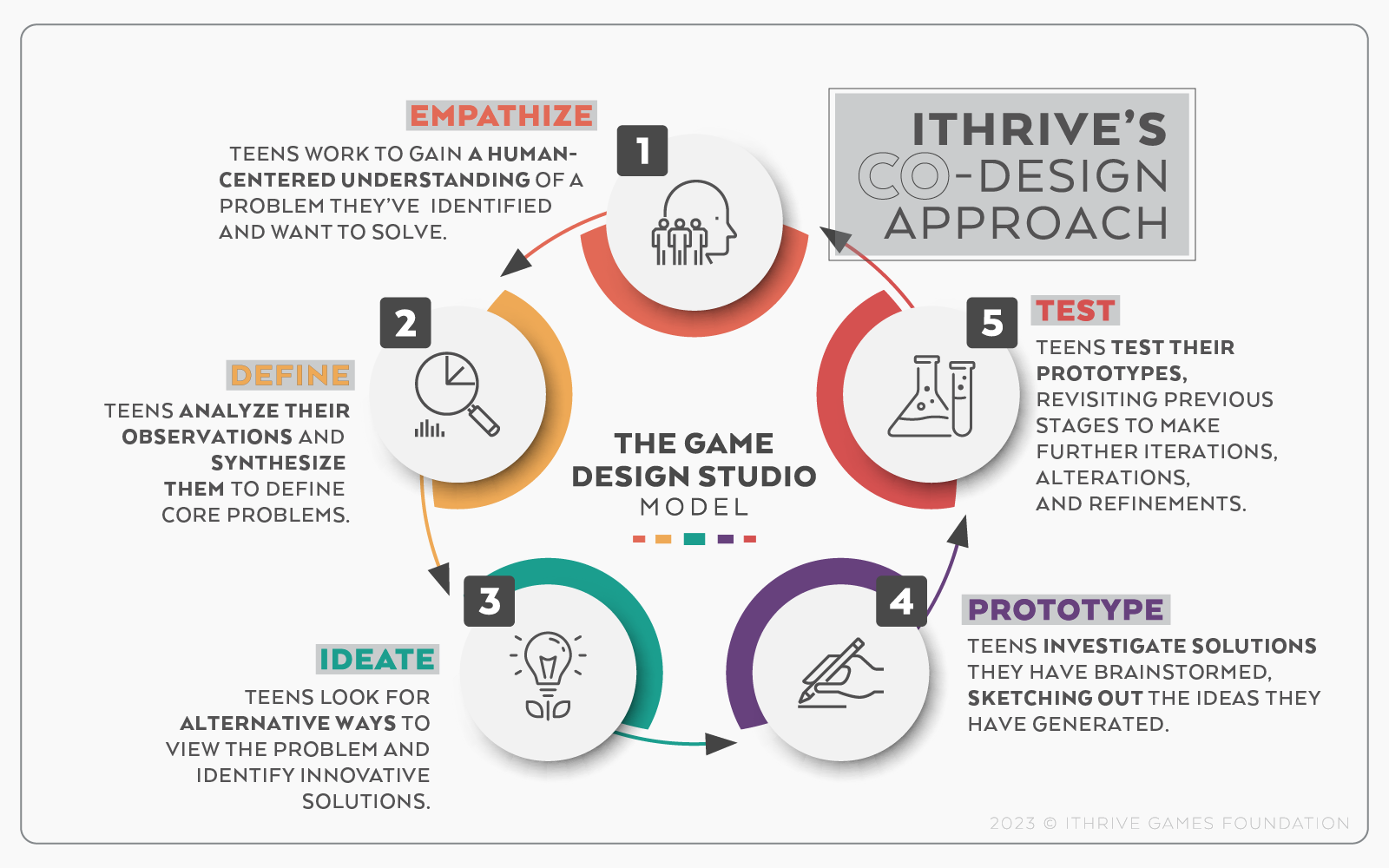
Explore the activities inspired by iThrive Games' Game Design Studio model in our Game Design Studio Toolkit.
True to the model, the session at the New York Historical Society started with the students learning more about the day's opportunity to influence civic learning for democracy. After they were given an overview of the goals and intended impact of the Educating for American Democracy's Roadmap, adult participants began to trickle in and when everyone was in attendance, the workshop kicked off with play. Educators, teachers, and designers played Our Threads, a connection-building question card game iThrive developed with Fugees Family, Inc., to warm up to each other and after playing a few rounds and reflecting on what a card game can do, joined forces to create a vision for the day. While naming these goals, the workshop's participants also talked through their definitions of a democracy that is inclusive of and healthy for everyone. These high dreams anchored us and our work together as the co-design session progressed.

Aaron Myper, a graphic notetaker, supported the co-design session with drawings and doodles that helped record the insights shared.
The icebreaker conversations and play were followed by empathy mapping exercises, where teens and educators reflected and shared their lived experiences as students and teachers. Deepening everyone's understanding of what the other feels, thinks, and does helped the group define success criteria together and clarify all that our learning experience design tool needed to address in order to be effective.
Then came the brainstorming.
Working collaboratively in small groups, students and educators began ideating ways to reflect the experiences and needs of students and teachers in an interactive card game that pulled from themes and design challenges in EAD's roadmap. Small groups shared their ideas with the larger group for feedback in support of fine-tuning.



Teens join with teachers, learning experience designers, and museum educators to co-design. As part of the collaborative experience, teens explore the XQ Institute's competency cards.
Ideas came to life when groups created prototypes that were tested and refined. Toward the end of the workshop, teens pitched to the larger group on the creative solutions they devised with others. An early prototype of the interactive card game to come, developed with the support of graphic notetaker Aaron Mayper, seeks to help educators create civic learning experiences for teens that prompt them to ask difficult questions and answer them through analysis and discussion.The first iteration of the game asks users to pick a card from a deck of 'big' questions from the EAD roadmap, like "What is power?" and "What is a social contract?" and pair it with contextual factors like year, racial identity, gender, and location from another deck that modify how the question is answered. Teen co-designers also suggested adding 'to me' wild cards to the game's deck to encourage learners to reflect deeply on their own identities and values.
The co-design experience was an impactful one that encouraged teens to define meaningful civic education and invited their influence over how its envisioned by educators. From their hands-on role comes a tool that inspires civic learning experiences in public spaces everywhere that are relevant to them, reflective of their hopes for democracy, and responsive to their educational needs.
THE POWER OF 'CO' GETS US TO IMPACT
"My voice as a student was heard," shared Moiz. "My opinion was valued."
"I realized that as a young person my voice does align with those older than me," echoed Tanisha.
"This workshop has changed the way I think about democracy. I have learned that my voice matters and makes a difference. Even if I cannot vote, I can still make an impact by sharing my perspective in this space."



Using the Game Design Studio model, teens are engaged as experts and thought partners throughout the co-design experience.
For the high school students who took part in this co-designing workshop, as well as the adult participants, the Game Design Studio (GDS) model that anchored the day helped create an all-embracing experience. By designing civic learning experiences in this collaborative way with teens, we integrate their vision for the world they will one day inherit in the planning of them with a method of cooperation that affirms and empowers them.
"Today's youth are tomorrow's future," shares iThrive's Executive Director, Susan E. Rivers. "When the Game Design Studio model is brought to the civic learning space to support the co-design of compelling learning experiences, it disrupts a limiting view of young people as just learners by engaging them from the start as thought partners too."
The co-creative space both teens and adults helped establish that Wednesday afternoon attests to how radical, intentional, and inclusive collaboration can inspire new ways of thinking, doing, and being.The output of the joint experience—an interactive card game and learning experience design tool—are the creative and impactful solutions that come from thoughtfully merging teen genius with subject matter experts. The teen co-designers' reflections show the GDS model's impact on the personal level and its unique ability to deeply engage teens in building better systems of learning.
"The only way to design a new system is not just to "involve" young people in the process: we have to engage in intergenerational co-creation," shares Fernande Raine, CEO and Founder of The History Co:Lab. "Many organizations create token roles for youth that are little more than fig leaves on blatantly adult-centric systems. We want to create spaces for the genius of the teen brain to help imagine and steer us towards the future that this world needs."
Our co-design model and approach honors the strengths of teens who are uniquely wired to learn by fully engaging them in their genius, and with it we are accelerating progress toward a world where young people are heard, healthy, and co-creators of systems supportive of their thriving.
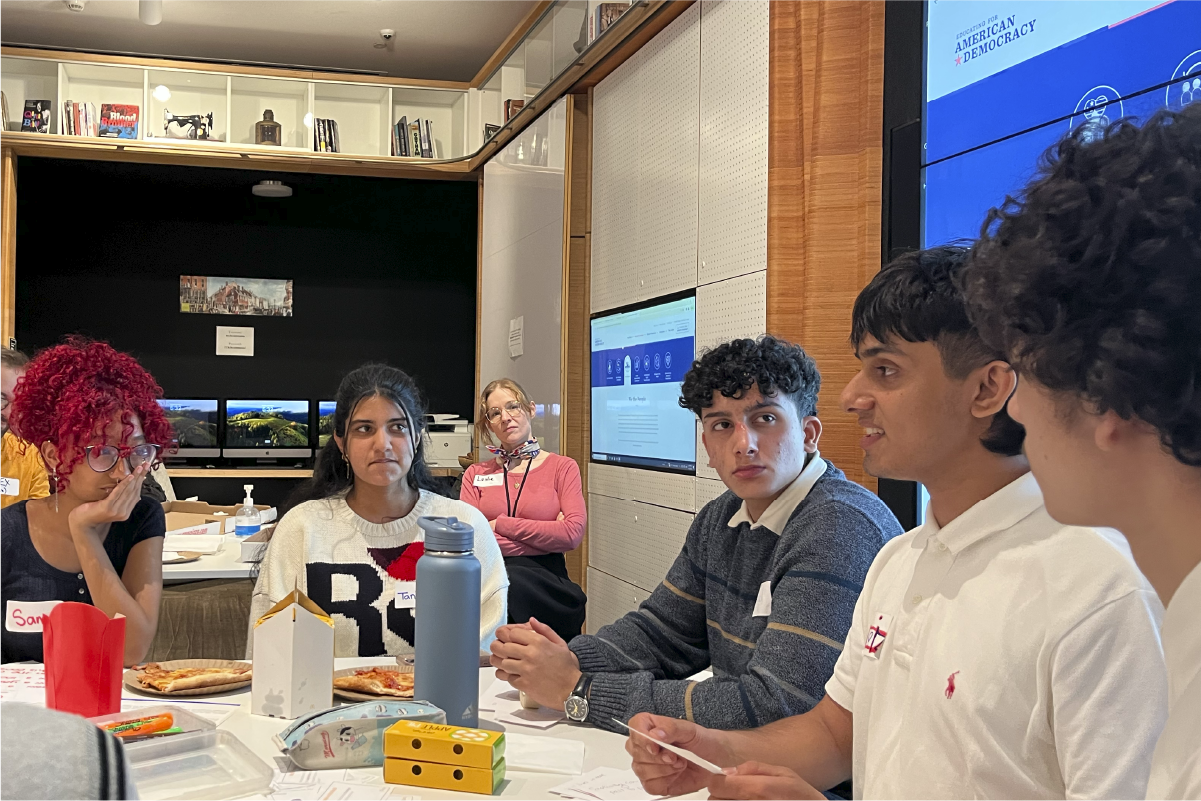
CONNECT WITH THE HISTORY CO:LAB AT THE 2023 NCSS ANNUAL CONFERENCE IN NASHVILLE, TN, TO PLAYTEST OUR PROTOTYPE OF THE INTERACTIVE CARD GAME!
iThrive Sim: What Embodied Play Ignited in a HS Social Studies Class

Play—like the learning and connection it fosters—is transformative.
To psychologist Peter Gray, Ph.D., play is an imaginative and active pursuit where the means are valued more than the ends. At iThrive Games, we know its power and use it to engage teens in their genius and meet their unique developmental needs, like identity exploration, social engagement, creative expression, and novelty.
A recent Nature article written by researchers from the UCLA Center for the Developing Adolescent affirms what we've known from being in community with teens over the last five years: experiences matter. The data shows that as the teen brain develops, nurturing it with opportunities for young people to explore, make meaning, connect, and discover purpose fosters mental health and reduces the likelihood of a crisis. The interactive, embodied learning experiences we create with and for teens expertly embed these wellness-supporting opportunities, enlisting the body, mind, and emotion-evoking power of play to build social and emotional skills vital to teen thriving.
The experiences our iThrive Sim role-playing simulation games have created in classrooms across the nation are testaments to what embodied play can and continues to do for young people. Using online play and tech—two mediums teens know well—standards-aligned civic learning is fully integrated with interactive opportunities for self-regulation, peer connection, and real-world applications. Since iThrive Sim launched, over 2,500 middle and high school students have played a game on the platform, where they have had the chance to compromise, negotiate, and collaborate meaningfully with peers in real-time to work through complex crises and 'wicked' challenges. Middle and high school educators who have brought iThrive Sim into their classrooms and facilitated one or more of its tech-supported games have remarked on how the experience enriched their classroom with a new way of learning and connecting.
Below, high school social studies educator Anthony Maida from the Methacton School District in Philadelphia, PA, shares his experience bringing iThrive Sim: Follow the Facts to his classroom and witnessing firsthand transformative learning in his students.
Q: What is your philosophy on teaching and how does iThrive Sim: Follow the Facts fit into it?
A: I guess I'd sum up my philosophy of teaching by saying that this job isn't really academic. Much like parenting, teaching seems much more like a relational pursuit than an academic one, so building good relationships with kids is the most important step in the educational process for me. With that, I'm trying to create experiences and opportunities in my classroom that move away from the transactional relationships that students and teachers often have with one another and more toward the transformational experiences necessary to show true student growth. This is where iThrive and Follow the Facts stand out to me. I've watched 17- and 18-year-old students who might otherwise be disengaged in their own learning step up and take an active role. I'm seeing kids with their own challenges really engrossed in what they're experiencing.
Q: What does social and emotional learning (SEL) mean to you, and how has iThrive Sim: Follow the Facts supported it in your classroom?
A: When I hear social and emotional learning (SEL), my mind immediately goes to building and fostering empathy in students. More than any content I teach, I'm hoping that kids walk out of high school in their senior years a little more willing and able to understand what their peers might be experiencing. While running Follow the Facts, I can see students interact with peers they may have never spoken to or even considered in their previous 12 years of school together. The content on the platform is so engaging that it brings together a group of students with really diverse backgrounds and experiences, and they all work toward a common goal.
Q: What shifts or moments during the play experience stood out to you?
A: When my classes are going through Follow the Facts, I am listening and watching as they have conversations with one another surrounding the issues presented in the Sim, such as keeping people safe or being honest in their reporting. It is no secret that many students are coming to schools today experiencing anxiety around a whole host of issues, especially in the wake of the pandemic. The most rewarding part of the experience for me was seeing students who may experience some level of anxiety in every other interaction during their day come out of their shells and totally engage with their peers in a way that might not otherwise have been possible. Students who might have struggled to find their voice in a large class suddenly spoke up, advocating for a position in our class simulation. I think that gets to the transformational part of education.
Learn more about iThrive Sim and register to bring iThrive Sim: Follow the Facts and our other tech-supported simulation games to your classroom.
HS Students Learn How to Be Conscious Consumers of Media Through Play

How are we preparing teens to thrive in the world they'll inherit?
At iThrive Games, this question has guided us since the start, shaped our values, and prompted the co-design approach we take with young people, which magnifies, nurtures, and builds on their brilliance. We believe teen thriving goes hand-in-hand with teen genius, and to a significant degree, the latter informs the former. Recognizing the magnificence of the teen brain has led us to co-create with young people experiences that meet them where they are, nourish them socially and emotionally, strengthen their 21st-century skills, and deepen their understanding of themselves, others, and the world. iThrive Sim: Follow the Facts, a tech-supported role-playing simulation game hosted on the iThrive Sim platform, is a byproduct of the collaborative work we, along with our partners at the Situation Room Experience, did with teen co-designers and playtesters across the nation whose ideas and feedback continue to inform the iterative design process behind the game. The result of our ongoing partnership with young people is an engaging media literacy skill-building simulation game for teens that brings civic learning to life in a meaningful, relevant, and memorable way for them through play.
Recently, high school students from Collegiate School in Richmond, VA, playtested a beta version of iThrive Sim: Follow the Facts. Making use of iThrive Sim's flexible tech, which works in any space with access to a Wi-Fi connection and 1:1 devices, students, both virtually and in person, stepped into their roles as journalists and news editors tasked with reporting on a breaking story with accuracy and without bias. Working in editorial teams of five, students contended with information shared via social media chirps, direct messages, and updates from government institutions and members of the public that they received through the iThrive Sim platform. In doing so, teens practiced how to source information and identify and respond to bias, using what they deduced to inform the content of the story they shared by the end of the game.
In playing iThrive Sim: Follow the Facts, teens learn by doing. After playing through the two-episode, 60-minute simulation game together, students at Collegiate School shared that the game helped them see firsthand how the media shapes public opinion and informs civic behavior, and that they felt the responsibility of that role. "It was fast-paced, which made the game fun and intense," shared one student. "Our team had to communicate to maintain a high trust level with the public, so it was good to form connections." Another remarked, "The best part was seeing the public's responses to decisions we made."
iThrive Sim: Follow the Facts mirrors the stressors members of the media navigate, providing a meaningful social and emotional skill-building opportunity for teens through embodied learning. Students navigate some of the pressures that accompany the 24-hour news cycle together and self-manage while under stress. From this, Collegiate School students deepened their understanding of the dynamics in the digital space and their impact on the institutions we all navigate. "The experience felt very real," shares one teen. "I learned that even random, anonymous people on the internet can cause public riots and outrage."
As with all things that come with doing hard work with others, students at Collegiate School shared the following about the new friendships and connections they built with their peers as they worked through the decisions that led to the story they broke together:
- "It was fun to make decisions as a team and think through the best course of action."
- "We sat at the same table and talked about it all with our group. It was really fun to investigate."
- "It was really fun to interact with my teammates. This brought us closer, and we had a lot of laughs."
- "I enjoyed collaborating with some of the students I hadn't talked to."
- "I enjoyed the experience and how it helped me get closer with my teammates and learn about a career I wouldn't have thought about doing."
Teens navigate a digital world marked by a never-ending stream of information. We see the ability to access, evaluate, analyze, act on, and communicate information as core skills that support teens in meaningfully contributing to the world they'll inherit and steer change in together. In iThrive Sim: Follow the Facts, teens practice how to effectively source information and learn how to evaluate the quality and truth of what they encounter. Co-creating this role-playing simulation game with teens like the students at the Collegiate School has enabled us to put forth into the world an immersive civic learning experience that helps teens build an awareness of bias and its impact on reporting and interpreting information. We invite you to bring the beta version of iThrive Sim: Follow the Facts to your youth group this summer or to students this fall at no cost and use play to support teen thriving.
iThrive Shares Wins with Affordance, SEED Institute at 2022 Serious Play Awards
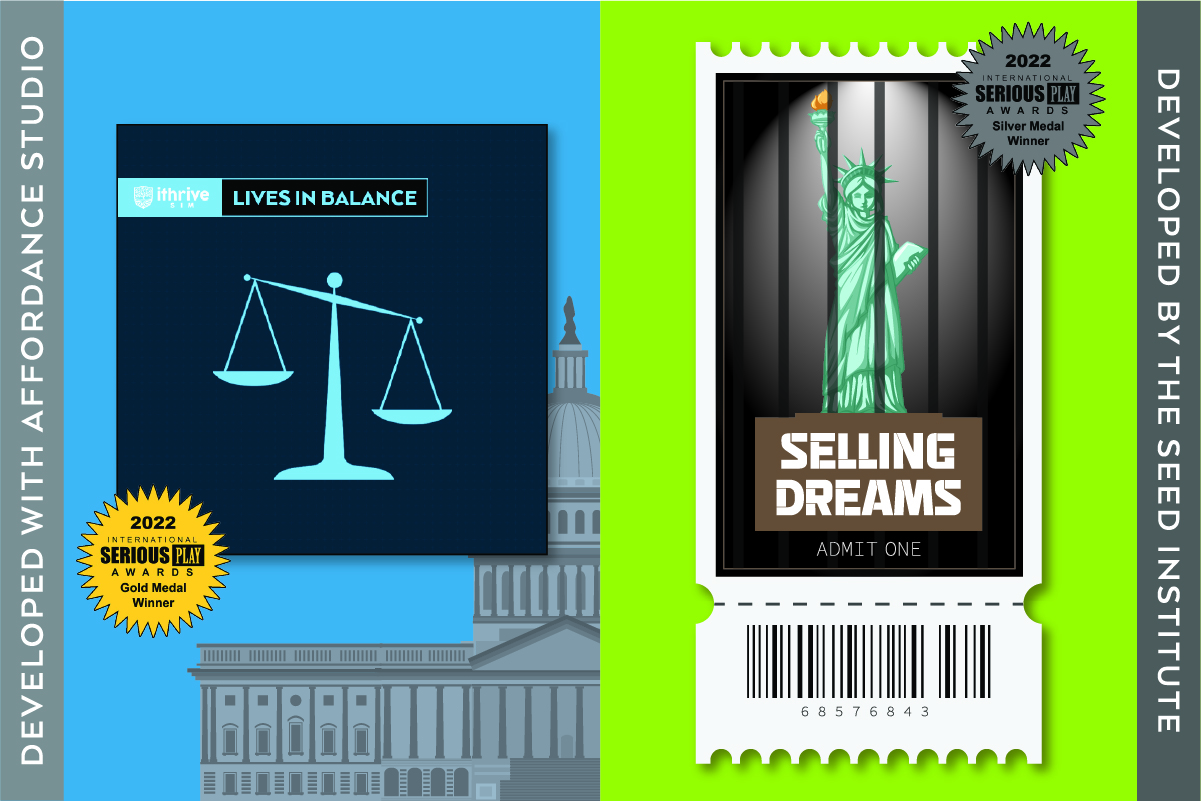
For Immediate Release: June 29, 2022
BOSTON— iThrive Games is pleased to announce two shared wins from the 2022 International Serious Play Awards, a program that honors outstanding commercial and student-developed games created for educational use.
iThrive Sim: Lives in Balance, created with our software development partners at Affordance Studio and the masterminds behind the Situation Room Experience, won a gold medal in the K-12 Education category, while Selling Dreams, the latest from youth game designers at the SEED Institute, won silver in the Non-Profit Training category.
Both digital games are hosted on the iThrive Sim platform, a lever for embodied learning and real-time interpersonal connection launched in 2020 to support the unique educational needs of the COVID-19 classroom. On an easy-to-use interface, players are asked to adopt roles, and are presented with unique information and decisions they must wrestle with in real-time. The players make choices that have ripple effects and drive the game forward. The device-agnostic, web-based software uses synchronous and asynchronous information delivery mechanisms to get players to work together and engage with the information they encounter in different ways. The immersion that iThrive Sim facilitates promotes enduring understandings that can be built upon in post-play debriefing sessions.
iThrive Sim: Lives in Balance, played by over 1,600 students and counting, uses iThrive Sim's dynamic features to enliven teen civic learning through student-led connection, improvisation, and embedded opportunities to grow 21st-century competencies. The interactive experience invites teens to play as government officials tasked with making tough decisions in response to a fictional pandemic. As players work through the 35-minute, tech-supported experience together, they evaluate data and lean into social and emotional skills like collaborating, advocating for their points of view and constituents, and compromising with each other to chart a path forward in uncertain times. Curricular surrounds and activities pair with the role-playing simulation game to deepen and extend the civics educational experience.
Selling Dreams, launching later this summer, uses iThrive Sim's immersive platform to tell SEED Designers' stories in an honest and resonant way that names the structural harm and shortcomings they've observed and experienced in Massachusetts' child welfare system. The single-player game invites case workers and youth-serving adults to take on the role of a Guardian tasked with meeting the needs of the young people they encounter and helping them through their unique challenges. In their role as a supportive actor, each Guardian must stay on top of files, messages, and relevant news sent to them about the youth they serve. Players must make decisions throughout the game using the insight they gather about how to engage with those in their care. With the 30-minute game, SEED Designers highlight the demands and stressors experienced by case workers tasked with disrupting the harm while providing a meaningful training opportunity to think critically about the behaviors that encompass truly responsive care and support.
Both digital games attest to the boundless creativity the iThrive Sim authoring platform supports. The content management system used on the platform allows for the development and editing of role-playing scenarios that fit the unique needs of each audience. The iThrive team is excited to invite new partners to use iThrive Sim and support them in creating new interactive, accessible, and scalable learning experiences.
"The iThrive Sim platform is embedding social and emotional learning opportunities to enliven teen-centered learning across so many topics, from civics to relationship health, to emergency preparedness, and more," says Susan Rivers, iThrive Executive Director and Chief Scientist. "One of iThrive's greatest joys is in co-creating new iThrive Sim scenarios with partners — young people and adults alike — in various sectors to amplify teens' strengths and interpersonal connections and make deep learning not only possible but immensely fun and impactful."
To learn more about the iThrive Sim authoring platform, click here. To contact us for questions related to licensing and developing experiences on the iThrive Sim platform, click here.
###
Media Contact: Eghosa Asemota (eghosa.asemota[at]ithrivegames.org)
About iThrive Games: iThrive Games prepares teens to thrive by meeting them where they are and working in partnership with them to co-create a world where their brilliance is honored, nurtured, and amplified. We use games and game design to equip teens with the social and emotional skills they need to be healthy and resilient.
How Games and Play Support Transformative Civic Engagement in Teens
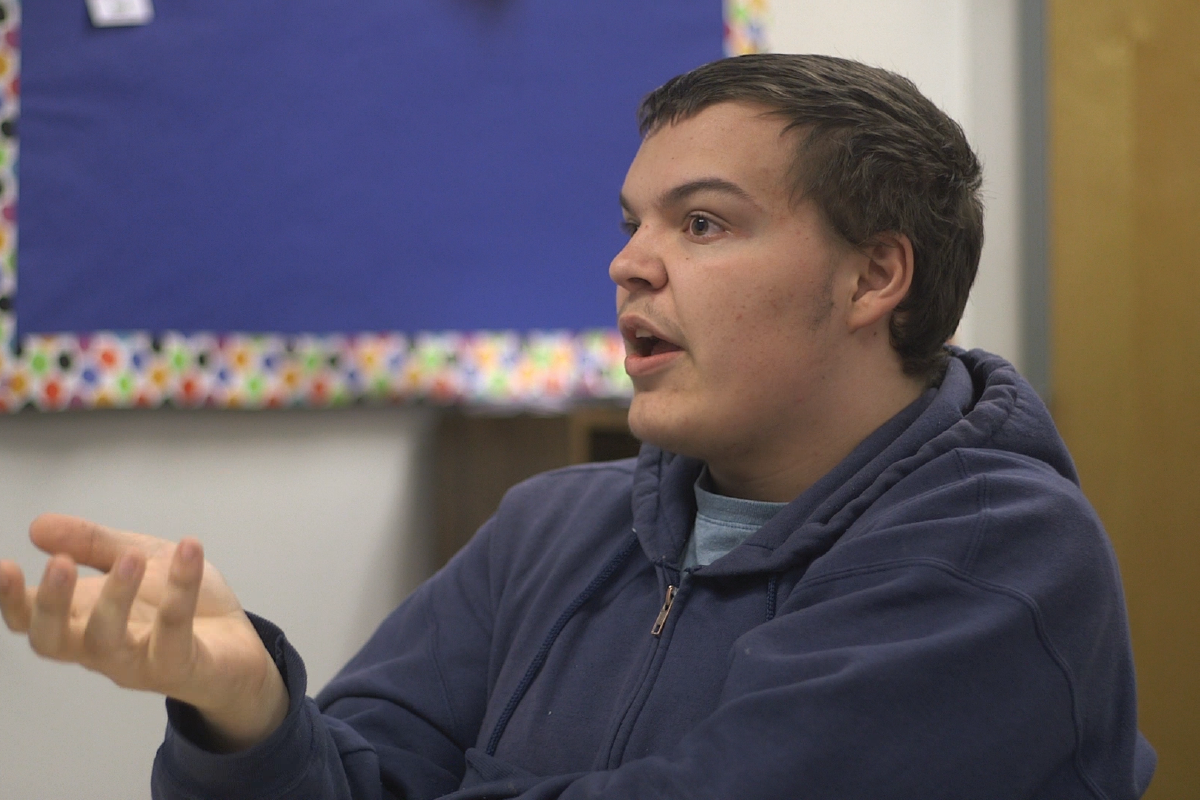
The teen brain is magnificent, and youth-led efforts to organize and realize gun safety, climate action, and reparative racial justice within their lifetime attest to it.
Our work as adults who care about young people is to meet them where they are developmentally and shower them with experiences that build on and add to the breadth of their genius. Games engage teens deeply and can prompt the connection, reflection, and creativity needed to support them in building the social and emotional capacity to co-create transformative solutions together.
Transformative civic engagement that centers our collective well-being begins and ends with our sense of community. This definition of community widens as we deepen our understanding of ourselves, others, and the world around us. By providing a safe space to wander, learn, test, and create, games become learning environments for young people to do this. Games offer contexts where young people can explore and practice self-awareness, social awareness, responsible decision-making, navigating relationships healthily, and regulating emotions. These core social and emotional skills are civic skills that help young people be informed and responsible members of society.
At iThrive Games, we create with and for teens game-based learning experiences that support them in being in the world they'll inherit with empathy and curiosity. Our resources and the games we've co-designed and launched offer experiences that build teens' social and emotional competence in a meaningful way. In Accidental Queens' A Normal Lost Phone, for example, players are invited to explore a lost smartphone and uncover the story of who it belongs to. Players must stay in the space of curiosity to 'win' the game. In doing so, they build their social awareness of how others think, behave, and feel as they sift through the phone's content and decode what they encounter. High school students who've played the game while using iThrive Curriculum: Sam's Journey in their classrooms have remarked on the transformative learning that comes from the game's immersive storytelling and the investigative lens players put on while working through it. After playing the game, one high school senior shared, "We had a long discussion about our original perceptions of people. This just completely changed my understanding. It made me feel a certain way. It made me think a certain way."
This approach of using play as an avenue for young people to practice core social and emotional skills is also enlisted in our iThrive Sim collection of games. Like A Normal Lost Phone, iThrive Sim role-playing games enable embodied learning that nurtures young people's change-making abilities. Young people are invited to play as government officials who must gather information sent in real-time, analyze it, and think critically about alternatives and consequences before making decisions in times of crisis together. Teens who've played through an iThrive Sim game try on new perspectives and get needed practice as they embody the self-management that negotiation and compromise require, learn to honor dissent, and strengthen their ability to make responsible decisions in collaborative settings. These faculties are central to a well-functioning society.
Games mirror our world and have the capacity to ignite new possibilities in it and in the young people who play them. We see games not only as valuable tools for social and emotional learning but also as springboards for knowledge-building and knowledge-sharing. At this year's Games for Change Festival, iThrive's Executive Director and Chief Scientist Susan Rivers will be continuing the conversation with a virtual session titled, 'Designing Games for Civic Skills: The Power of Creation.' There, she'll be diving into how iThrive's Game Design Studio approach uniquely supports systems thinking in young people through game design, helping them magnify their civic voice, and co-create solutions to challenges in their communities. Register to tune in on Saturday, July 16 at 2:30 p.m. EDT and be a part of the discussion!
How Are We Teaching Teens to Prepare for and Respond to Natural Disasters?

2021 saw a record number of catastrophic natural disasters and weather emergencies throughout the United States. Wildfires ravaged the West Coast, destructive flooding engulfed the East, extreme temperatures enveloped the South and Pacific Northwest, and the Atlantic hurricane season—the third-most active one in history—produced 21 storms.
The intensity and frequency of these natural disasters prompt important questions about disaster preparedness—what can we do to ensure our safety and the wellbeing of our communities in times of crisis? We think the answer must enlist the creativity and perspectives of young people, and the Federal Emergency Management Agency (FEMA) agrees. They view young people as "positive influencers" uniquely capable of bringing the message of preparedness home to their families. Like FEMA, we believe that equipping young people with emergency management skills is a crucial part of engaging whole communities. Together, we're creating a new iThrive Sim scenario that strengthens teens' emergency preparedness through play.
The new hands-on learning experience, designed in partnership with Federal Emergency Management Agency Region VIII, will be hosted on the award-winning iThrive Sim platform, which uniquely merges tech, role-play, social and emotional learning, and online gameplay to deeply engage teens with rich storylines and with core content. The resulting role-playing simulation scenario will help FEMA increase access to training opportunities and better reach young people living in underserved and rural communities.
"While nothing highlights the importance of emergency preparedness quite as well as the visceral experience of a natural disaster, we don't want it to come to that," share Daniel Nyquist and Stephanie Poore from FEMA Region VIII. "An engaging simulation is a fantastic tool for laying down the mental pathways we need to activate in times of crisis. That's why we are thrilled to be designing a disaster preparedness simulation with the iThrive team. iThrive's unique co-design approach is illuminating how to mobilize young people's creativity and distinct strengths in service of building mindsets and skills needed for resiliency across disaster preparedness, response, and recovery."
A core principle of iThrive's co-design process is involving teens in the development of products, programs, and services that seek to engage them. As we work with FEMA to create this new tool for Region VIII, which serves 29 Tribal Nations, Colorado, Montana, North Dakota, South Dakota, Utah, and Wyoming, we've been in community with teens from those states to gauge their needs and weave their input into each step of the game design process. An initial co-design workshop with 15- and 16-year old teens surfaced themes that were top-of-mind for them, including ensuring the safety of pets, coordinating resources, trusting experts, and cultivating the emotional ability to cope with disasters. These themes are actionable insights that will inform the game's content and ensure what we create is relevant, memorable, and meaningful for teens.
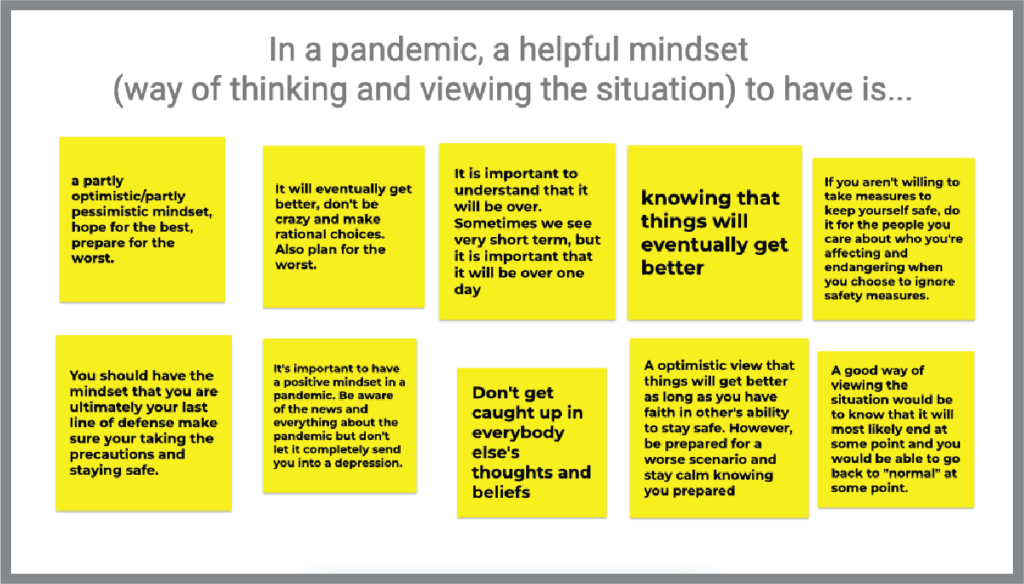
A snapshot of a Google Jamboard from a recent brainstorming session with teens featuring their responses.
As we work through the game development process, the wisdom of the teens we're working with continues to be both instructive and inspirational. "Teens never cease to impress me with their generosity, openness, and vulnerability when sharing about difficult topics—they get right to the heart of the issue with self-awareness and a solution-focused drive," shares Jane Lee, Senior Director of Operations and Mental Health at iThrive Games. "These teens have been through a remarkably challenging time, and it's only strengthened their resolve to build the skills and relationships they need to grow in their resilience."
The iThrive Sim scenario, launching in late 2023, will support teens and their families in knowing what to do in an emergency situation, covering disaster preparedness and response. To stay updated with its launch, be sure to join our mailing list today.
iThrive Sim Helps Homeschoolers Connect And Collaborate With Play
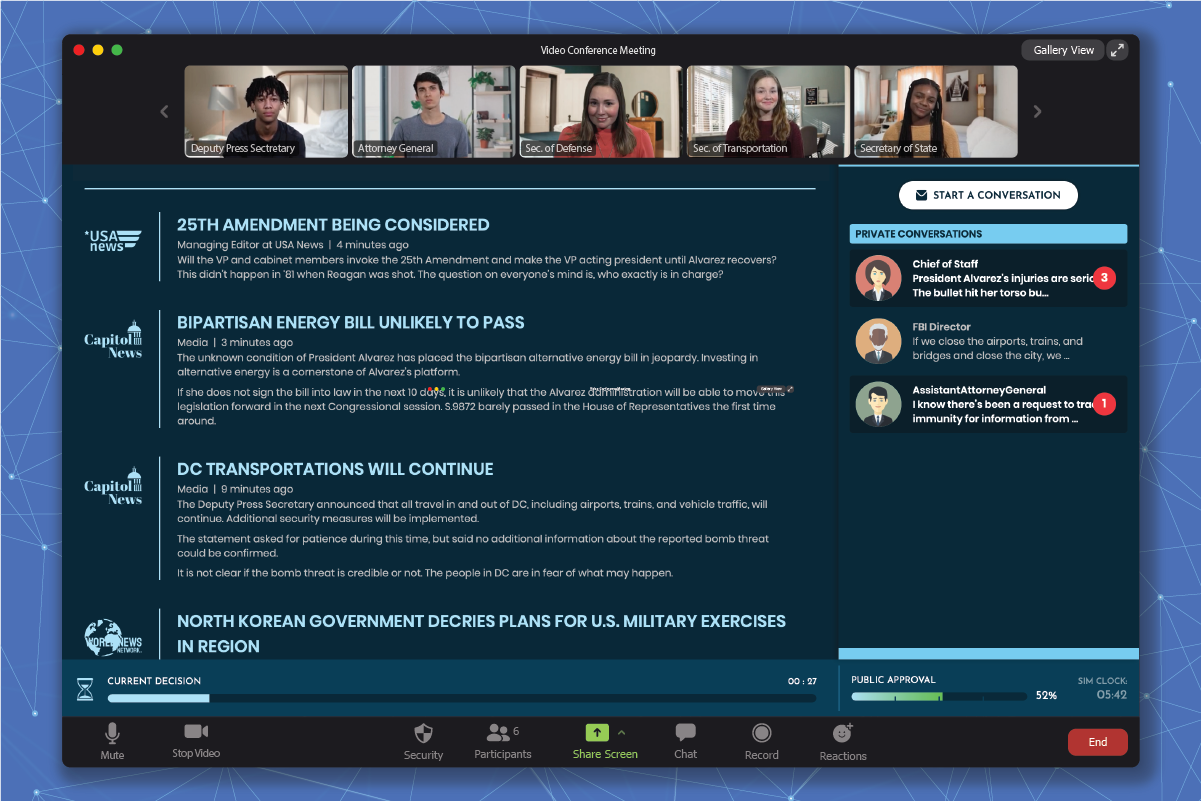
iThrive Sim's first role-playing scenario launched in late 2020, a year that inspired us to elevate and prioritize human connection, and prompted new ways of fostering it. At the time, we heard educators voice a desire for resources that not only met the logistical needs of remote learning but also tended to the social and emotional needs of their students navigating a world of great uncertainty. Responding to this, we developed iThrive Sim: Lives in Balance in partnership with teens, teachers, and the makers of the Situation Room Experience, creating an immersive experience that supported new ways of connecting and engaging with others in learning spaces and beyond. Since launching, over 3,000 people have played an iThrive Sim scenario, activating and nurturing their social and emotional skills in a one-of-a-kind collaborative gaming experience awarded for its innovation and responsiveness.
Educators who've brought iThrive Sim to their in-person or virtual classrooms know firsthand how these civic learning experiences uniquely support engagement, connection, and social and emotional learning through play. Michael Hilbert, co-director of Cupola Academy, a nonprofit that offers weekly collaborative programs for homeschooled students, brought iThrive Sim to two cohorts of teens earlier this year. In the interview that follows, Michael shares how the tool aligns with Cupola Academy's belief in the value of collaboration and curiosity, and supports the learners they serve in embodying and exercising it.
Q: What was your experience using iThrive Sim with your homeschooled students?
My group played Lives in Balance and Leading Through Crisis. My students were very interested in Leading Through Crisis because when we played the simulation, states were actively discussing [the applicability of the 25th Amendment]. The simulation was unfolding in front of them in the news every day, and they enjoyed being able to play out a very contemporary issue. They enjoyed Lives in Balance because of the application of the Constitution to everyday life—it helped to drive home the point that the Constitution is a living document.
Q: How easy was it to use iThrive Sim? What resources did you find particularly useful?
As a group facilitator, I really appreciated the support materials that are available to students, such as the text of the amendments addressed in the simulations. [iThrive Sim] was very easy to use and supported student play though they were not all in the same physical location. The interface is very intuitive for young people, so the amount of tech support needed was very minimal—this makes implementation with homeschoolers very easy.
Q: One throughline in the feedback we get from educators who've used iThrive Sim is the joy that comes from witnessing their students work collaboratively to address the crises in each scenario. From what you observed, how did the experience support connection?
I believe that iThrive Sim is a component of what we strive to achieve in all our programming — creating community and connection. The simulation provides a shared experience that nurtures the group's sense of community. I think that participating in the simulation helped them feel more connected because it creates situations where young people are given responsibility for a role, asked to participate in a fun and engaging way, and end up sharing values and beliefs with others (which is how you build relationships).
Q: Overall, how did the iThrive Sim experience support your engagement approach with homeschoolers? How did it respond to your student(s) learning style(s)?
I believe that the online simulation was an excellent tool for interactive learners. The iThrive Sim platform allowed me to have the freedom to be present in the simulation, take notes on the decision-making process, and have content questions that lead to richer reflection and a complete learning experience.
Q: At iThrive, we like to say that civics is social and emotional, meaning that showing up for ourselves, our communities, and in the world requires social and emotional skills that support us in doing so with care, tact, and empathy. Were there any instances that you observed while your students were playing that attests to this? What do you hope your students take away from their gameplay experience?
Going through the simulations emphasized the difficulty in adhering to a respectful, empathetic process when under challenging time frames to make decisions. My students noted in both situations that they frequently ran out of time to make challenging decisions while having everyone's opinion fully heard, a very frequent situation with governing bodies. One of the opportunities for my groups was initiating a process-conscious approach for decision-making before they entered the next scenario. The reflection element of these exercises is so vital for the social and emotional growth of young people.
Sign up for our mailing list for exclusive opportunities to play and test new iThrive Sim role-playing scenarios. Learn more about iThrive Sim here.
Let’s Start Calling Social & Emotional Skills What They Are—Essential Skills

Before you read this article, take a look at your news feed.
You are more than likely to encounter an event or sentiment that attests to the increasingly polarizing and often unsettling world we live in and navigate. A recent survey published by USA Today shows that roughly half of Americans (48%) predict more destructive disagreements over the next ten years, but 93% say it's vital to reduce the country's current divides. How can we move toward realizing this unity amidst enduring divisiveness? We must build social and emotional skills. Social and emotional skills help us get better at togetherness. They are not 'soft'; they are essential, and nurturing them supports us in moving toward the more harmonious, just, and loving future we crave.
The Organisation for Economic Co-operation and Development (OECD) refers to social and emotional skills as "weapons against the greatest threats of our time: ignorance - the closed mind; hate - the closed heart; and fear - the enemy of agency." Social and emotional skills support us in taking an honest look at ourselves, really seeing each other, working together to find solutions to the complex challenges we face, and then persevering in enacting those solutions. Within education, thoughtful and equitable attention to social and emotional skills demonstrates a real commitment to equity more broadly; we can't expect equal outcomes unless we ensure all students are equally ready to learn in the first place. Social and emotional skills are undoubtedly critical to this readiness.
For this generation of teens especially, social and emotional skills are not just important; they are necessary. Social and emotional learning is the process of building and practicing social and emotional skills in schools. At iThrive, we embed this process in the game-based tools we create for and with teens, and use the connective and reflection-prompting power of play to build their social and emotional skills. Our iThrive Curriculum units, Museum of Me, Sam's Journey, and A Moment in Time, pair standard-aligned lesson plans with immersive video games to create learning experiences relevant to teens in high school English classes. These game-based learning experiences use digital media to encourage them to explore their identity, their emotional landscape, and how they navigate social relationships. Our civics-centered iThrive Sim games, Lives in Balance, Leading Through Crisis, and Follow the Facts, engage teens not just by supporting their understanding of the mechanics of government but of themselves, their identities, values, and communities. Each of these online simulations presents an opportunity to try on new perspectives, embody constructive decision-making techniques through role-play, and reflect deeply on how decision-making affects others.
These offerings for high school classrooms and youth-centered spaces were designed to encourage teens to develop the social and emotional resources that enable them to think for themselves and join others, with both empathy and curiosity, in learning, building, and imagining a better world. They also support teens and the adults they share space with in understanding that social and emotional skills are relevant to all subjects and aspects of life. The language we use to describe and advocate for social and emotional learning should reflect its standing as an essential part of the future we're all striving to attain—one that empowers us to live, work and thrive collaboratively, resiliently, and productively. Raising SEL's profile from that of a 'soft skill' to an educational and humanistic priority helps get us there.
What Teaching Hard History Does for Teens’ Social and Emotional Learning
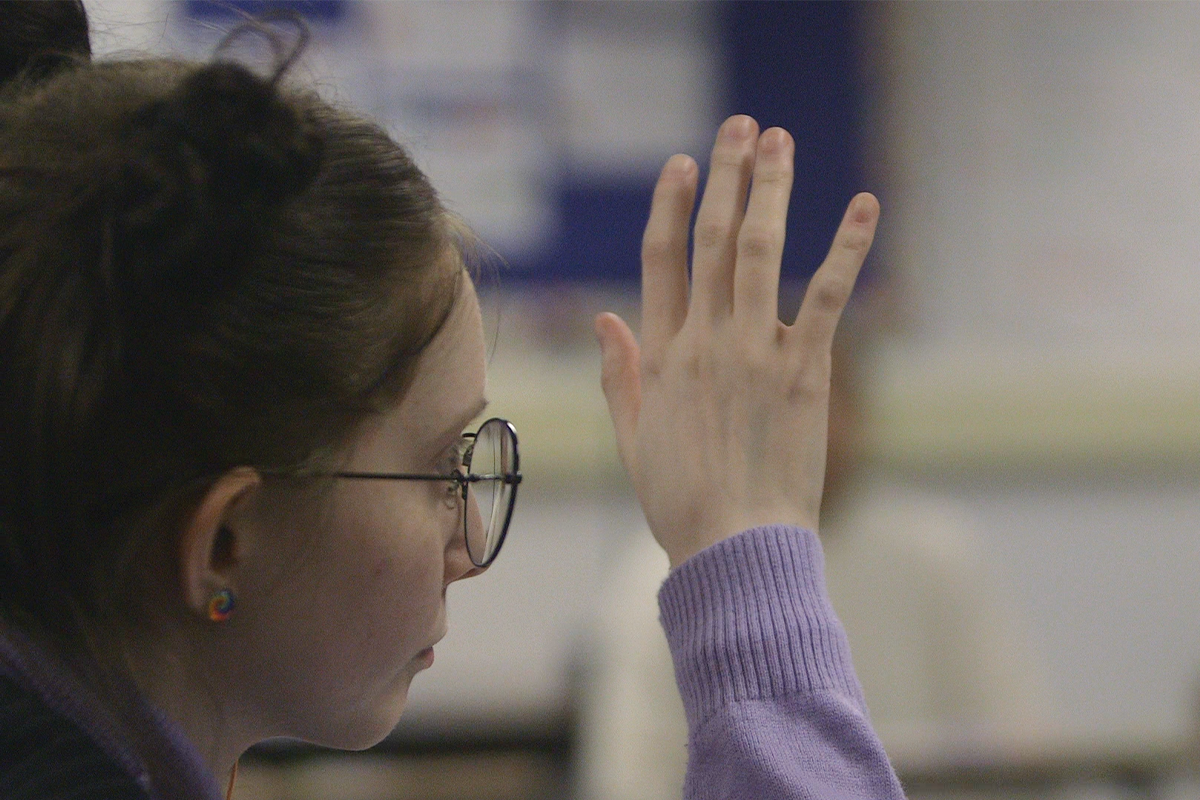
Teaching hard history helps students understand the implications of our past and their connections to our present. With this understanding, students are better positioned to confront future challenges and are primed to embody the social and emotional competencies that support them in being engaged, informed, and responsible members of society.
At iThrive, we're committed to creating civic learning contexts that equip teens with the curiosity, practical experience, and social and emotional learning skills to handle and navigate the complex world we live in. Our iThrive Sim online role-playing simulation games, for example, invite high school students to step into the role of government officials tasked with making high-stake decisions that impact the public in profound ways. As students collaborate to analyze data and sources and chart a path forward in each of iThrive Sim's content-rich scenarios, they practice how to navigate sensitive themes and challenging issues in a healthy, curious, and thoughtful way.
On Wednesday, November 17 at 6 pm EST, we're excited to join forces with Facing History and Ourselves and Generation Citizen at Composer's "Teaching Tough History Through Civics & Social Emotional Learning" webinar to discuss strategies that support the integration of civic and social-emotional learning into history lessons that address tough themes and topics.
Register to join Composer's "Teaching Tough History Through Civics & Social Emotional Learning" webinar here.
There, our Senior Director of Learning, Michelle Bertoli, will highlight some of the social and emotional skill-building opportunities we've embedded in all of iThrive Sim's role-playing scenarios. Attendees will also learn from Dr. Shawn Clybor, who'll share how Composer, an award-winning curriculum design tool, helps teachers like him create dynamic learning experiences that prepare students for transformative civic engagement and meaningful civic action.
When teens who've played an iThrive Sim scenario share that the experience prepares them for "real-life situations and issues" or prompts them to reflect on what "we're all collectively facing, and why and how we should do a certain task," we're reminded of how teaching hard history supports them in showing up for themselves, their communities, and the world.
At the individual level, teaching hard history topics enables them to see themselves as part of the larger historical narrative of our communities, country, and society. This supports students in building the self-awareness to challenge their assumptions, define their values, and figure out where things they love and are skilled at overlap with a need in the world. At the community level, teens build social awareness and relationship skills that support them in developing the competence to try on others' perspectives while expressing and refining their own. In learning about heavy historical topics and events, students also develop an informed worldview along with an understanding of systems of harm and injustice. This understanding equips them with the knowledge and motivation to advocate for a more just society and make responsible decisions for themselves and the collective.
Teaching hard history can be challenging and may raise complex emotions for learners and educators alike, but when integrated with social and emotional learning, it becomes a powerful experience for students to reflect deeply about the world around them and the world they wish to live in. We're excited to dive into this topic further at the "Teaching Tough History Through Civics & Social Emotional Learning" webinar with educators across the globe. We hope to see you there!
Composer is the first digital platform to offer a comprehensive collection of resources for activating a deeper sense of civic responsibility in students. As a one-stop marketplace, Composer enables educators to access a whole ecosystem of content providers in one place. They can search for and find resources that span civics, social justice, social and emotional learning, and global competence. Composer features over 1,000 high quality learning experiences from over 35 organizations, and provides research-based tools and guidance to support educators with curriculum planning. Serving educators working with grades 6-12 in both schools and non-traditional learning environments (afterschool programs, summer camps and/or home school), Composer is free to access for educators around the world.
Creating ‘We’ and Restoring ‘Us’ with Civics and Social-Emotional Learning

Transformative civic engagement that truly benefits collective well-being begins and ends with our sense of community. Widening our definition of community requires empathy and connection. How do we create meaningful experiences for teens that support them in practicing this? And how do we support them in recognizing different perspectives, understanding them, and applying that understanding to pursue common goals?
Our answer to these questions lies in the immersive civic learning and social and emotional skill-building experiences we create with and for teens that enlist the connective power of play. iThrive Sim's online role-playing simulation games invite students to take on roles—such as government officials, state governors, or reporters—who must work strategically with their peers to analyze and respond to complex challenges. Collaboration, critical thinking, and connection drive each iThrive Sim game forward as teens practice regulating emotions, exercising curiosity, and making decisions that consider self, others, and the world, developing needful wisdom and practical experience in a safe space.
History, social studies, and humanities educators across the globe have used our game-based approach to civic learning to nurture the social and emotional learning competencies that support transformative civic engagement in their classrooms. In the interview below, one of our iThrive Sim users, Karalee Wong Nakatsuka, an 8th grade history teacher based in Arcadia, California, shares how vital belonging, representation, and community-building are in her approach to teaching history and how iThrive Sim helps support that approach.
Q: Tell me about your passion for civics education. What inspires you, and why do you believe civic learning is so valuable for students?
A: I believe it's very important for everyone to see themselves as part of the whole. When I was in school, I didn't see myself in history, so I wasn't as civically engaged because I didn't see myself as part of the whole. Later on, through mentors, great civics conversations, and learning history through someone who looks like me, I did start to see myself as part of the whole and where I fit into the larger picture. Every Friday, I attend History Matters with Joan Freeman, and it's really helped me to make the connections between the past, and the present, as well as to reflect on how our empathetic understanding of history helps to inform our thoughts and actions as citizens of this democracy. History and civics need to be examined empathetically because laws and rules affect people, government decisions affect people, and voting affects people. I want my students to be able to connect with the past and the present. Representation is important, both in history and in life, and I want my students to see both people who do look like them, and those who do not. I want them to know they have power, responsibility, and that they can make a difference in many small ways, not just when they are old enough to vote. Being an engaged member of society as an 8th grader can mean being nice to a 6th grader, or picking up a piece of trash. Civics needs to be tangible and inclusive, and can be as simple as someone who shows up.
Q: When teaching civics, what have you seen work really well with students?
A: I teach in a school district where Asian students make up about 70% of the population. Asian American history, often left out in history classrooms, really resonates with my students, for both Asian and non-Asian students. They need to see both people who look like them to connect and those who don't to understand diversity and inclusivity. I use a global lens in my teaching to help students understand that history is not just American history and decisions that we make in America don't just affect people in our country. History across the globe is intertwined, and decisions we make locally affect people all over the world.
Q: How has iThrive Sim supported your approach to civics education and your students' civic learning?
A: I used iThrive Sim this Spring and it invited students to learn about the government by participating in a challenging, engaging simulation, where they check public opinion, examine data, negotiate, and make informed decisions. It was great to have the opportunity to do iThrive Sim with all of my classes. There was one class where the group was quite engaged and one student in particular was really taking his job seriously, thinking about how to represent his constituents. That was a really powerful moment, and a great example of the impact of civic learning.
Q: How have you seen the impact of civics on students long-term or outside of the classroom?
A: My school is in Arcadia, a small city which is in Los Angeles County. A few years ago, there was a controversy when the city council voted to get rid of a basketball court. One council member said he didn't like "the type" of people the court was attracting. Many felt it was a racist argument and the fight to save the court reflected the city's desire to be an inclusive welcoming community for all. Many people, including myself and some of my students, went to the city council meeting where people of all ages and backgrounds spoke about the importance of the basketball court. One of my students got up to speak, basketball in hand, and in the end, the basketball court was saved. Not only was I very proud of my students, but it was a great learning experience and example of civic action.
Q: In your experience, how did civics education change during the pandemic and remote learning? Now that your school is back in person, are those changes still reflected, or are there other shifts that you are seeing?
A: Students are certainly happy to be back. They are more engaged, and community-building is so much easier in person. When we were remote, I would always keep the chat open during virtual learning to keep the communication going, help them build respect for each other, and ensure they felt heard. Given the circumstances, it worked well, but now we have in person weekly community circles where we do check-ins and shares. There are some students who are behind, and there are subtle differences in their skills, but we are working together. I have a cube-shaped microphone that I throw around to whoever is speaking. It's a great way to literally amplify student voices and ensure their peers are listening. We all want to be heard, so I want them to feel that their voices matter. In the day-to-day, it's easy to get caught up in content and forget to create community, and forget to talk to students. There isn't always an obvious community or 'we' in America, even though we all need that. This makes it easy to 'other' people, but also all the more important to create community with students.
iThrive, Middlebury Institute Awarded DHS Grant for New Simulation Game

Earlier this week, iThrive Games, in a joint project with the Middlebury Institute of International Studies, was awarded one of 37 grants from the Department of Homeland Security (DHS) under the Fiscal Year 2021 (FY21) Targeted Violence and Terrorism Prevention (TVTP) Grant Program.
iThrive Games and the Center on Terrorism, Extremism, and Counterterrorism at the Middlebury Institute for International Studies will work together to create a novel, game-based learning experience that educates and empowers adolescents to become more aware and more resistant to radicalization, thus building resilience within their local networks.
Our approach to role-playing simulations embeds social and emotional learning and integrates tech and online play. iThrive Sim's role-playing simulations illuminate systems in the world that can be largely invisible until a person is invited to work and improvise within them. Experiences like these can propel students' curiosity and motivation to explore new ways of interacting and making decisions that can improve dysfunctional systems, counter extremism, and produce a better world for all.
"Using games to foster belonging and connection is what we are about," said Susan E. Rivers, Ph.D., Executive Director at iThrive Games. "We are saddened by the weaponization of belonging to advance radical agendas. This project is aligned with our mission to use game-based learning to support teens in recognizing true belonging and strengthening prosocial behavior."
Since teens are highly attuned to their emotions and social status, the experiential approach of role-playing meets them right where they are developmentally. The role-playing simulation game that will be created as a result of this grant will be designed to offer students opportunities to think about and practice self-awareness, social awareness, self-management, relationship skills, and responsible decision-making.
Part of the work of the grant will be supporting the local community-building the capacity at the administration and school level for delivery of the game-based learning experience.
According to a press release issued by the DHS, "The FY21 TVTP grants expand on the Department's new approach to prevention, which centers on providing local communities with evidence-based tools to help prevent violence while protecting civil rights and civil liberties and privacy rights. These grants will help local communities strengthen online and in-person prevention efforts, including by addressing early-risk factors that can lead to radicalization and violence."
High School Teachers, Share Your Feedback on the New, Improved iThrive Sim

iThrive Sim, designed to support high school educators in providing a deep civics learning experience role play through the lens of social-emotional learning, will soon be ready for teachers to facilitate! Since its debut, iThrive staff have facilitated the learning experience. We heard that educators want to be in the drivers' seat, running the simulations in a way that responds to their needs. We listened and are developing a new teacher-friendly interface for our three iThrive Sim scenarios that allows educators to run their own simulations in their in-person, virtual, or hybrid classroom.
Are you new to using iThrive Sim with your students? Each game merges online gameplay, immersive tech, and a content-rich storyline to engage HS students in a unique civic learning experience where they step into the role of leaders to make high-stakes decisions that impact the communities they represent. The new, self-guided versions of our iThrive Sim games are a great way to bring play, civics, and social-emotional learning to your high school classroom. Experience the best of our games, with the added benefits of being in the drivers' seat:
- Logistical Flexibility. Need an activity to engage your high school students on the spot? Want to run a simulation over multiple class periods? With self-facilitation for an iThrive Sim scenario, you'll have as much flexibility as you need. No need to schedule your classroom's Sim with a facilitator.
- Customize Roles and Groups. You know your students best. Think a particular student would benefit from a challenge? Or do you have students that are extra competitive or reserved? With you as the facilitator, you will have a full range of assigning roles and groups to meet your high school students' needs best. Place them where you know they will thrive and have the best experience possible.
- Engage with Your Students: Good facilitating fosters authentic engagement. When you know you're leading the discussion, you'll naturally be more engaged throughout the entire simulation and your high school students will too.
- Continued Support: Self-facilitating an iThrive Sim scenario does not mean you'll be totally on your own. When you sign up, you'll receive resources, checklists, prep materials, accompanying lesson plans and more, to support you in running a successful Sim for your class of high school students. Plus, our team is just an email away; we're always happy to answer any questions and provide technical support.
- Tie the Sim to Other Lessons: When you're in the driver's seat of an iThrive Sim scenario, you can easily reference previous lessons you've completed when relevant to the discussion and student experiences. In turn, you can challenge your high school students to draw more connections between content, resulting in a holistic learning experience.
Interested in using an iThrive Sim scenario in your high school classroom?
We're looking for high school educators who can pilot our new self-guided version of iThrive Sim, and give us feedback on the new teacher-friendly interface and process. We know you're busy, so we are paying $100.00 for your time. The pilot program will include:
- A meeting before running an iThrive Sim play session with your students;
- Running an iThrive Sim play session with your students using any of our three games (iThrive Sim: Lives in Balance, iThrive Sim: Leading Through Crisis, and iThrive Sim: Follow the Facts);
- Letting us know when (day and time) you'll run the session so we can be there to support you; and
- A follow-up conversation to hear about your experience
Sign up below and we'll be in touch to get you and your high school students set up to play!
Stories Add Heart to History. This Project Uses Them to Teach About Migration.
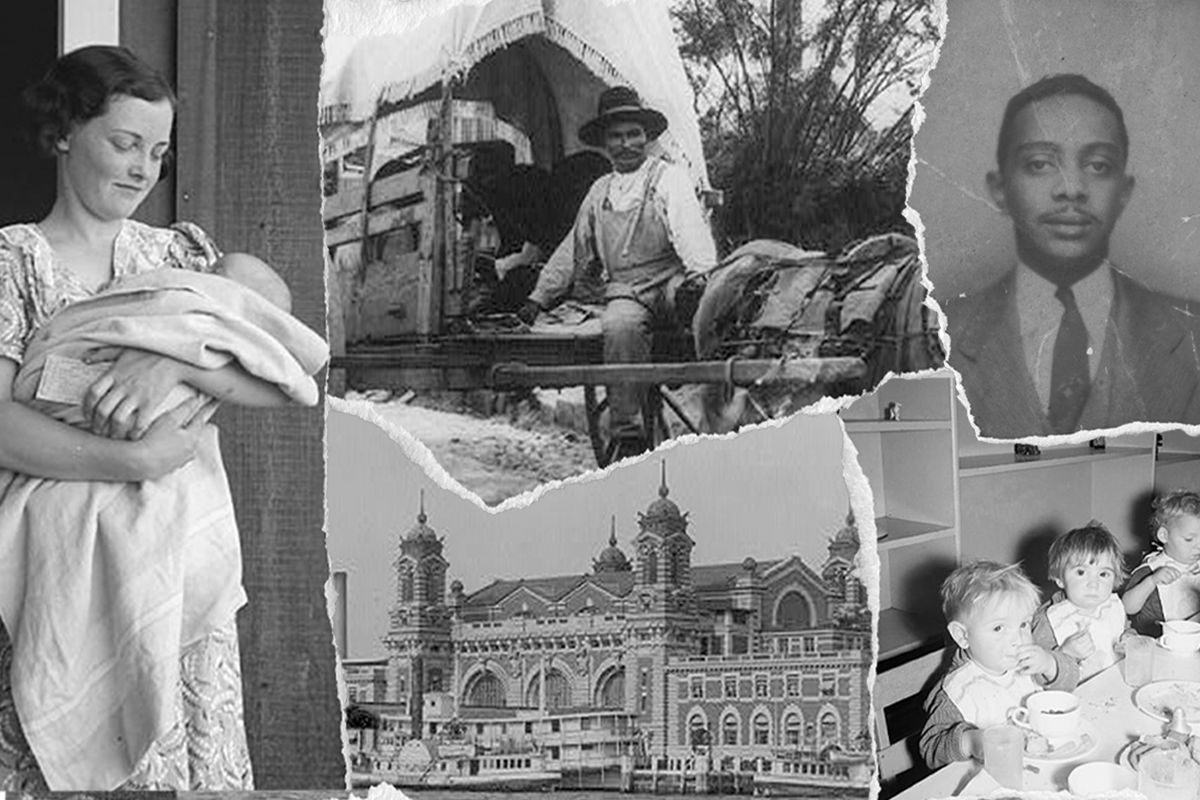
This summer, iThrive Games, Ronald Reagan Presidential Library and Museum, Re-imagining Migration, Got History, and the Herbert Hoover Presidential Library and Museum invited educators to collaborate on Moving Stories: From Personal to Policy, a project sparked by a desire to support teachers in facilitating challenging conversations with students around topics and events in history.
The north star of the collaboration was three-fold:
- To model co-creation of learning experiences that are inspiring and help students not only learn about a historical moment but also connect more deeply with their own identity, realize the connection of personal story to policy, and take away a new commitment to/plan for advancing justice through civic engagement.
- To create model learning experiences that can help shift the historical teaching paradigm away from single-narrative content-sharing to a place- and document-based democratic pedagogy that incorporates inquiry, awe, and play to achieve deep learning on core ethical, civic, and historical concepts.
- To expand the networks and communities of practice of some amazing educators looking for cutting-edge ways to engage students.
Over the course of the four days, participants dove into primary source materials, co-created lesson plans, and had the opportunity to listen deeply to and learn from each other about how the topic of migration touches their personal lives and family stories.
"Migration is a theme that connects all of humanity, and that was obvious in hearing the stories of each individual who made up this learning community," said Michelle Bertoli, Senior Director of Learning at iThrive Games. "It was amazing to see everyone's unique perspective and teaching/content expertise blend into cohesive peak learning experiences, with embedded social and emotional learning opportunities, that I feel confident will engage teachers and students in new and deeper ways of teaching and learning."
The endeavor was not without challenges, such as finding ways to approach and meaningfully use primary sources with often an abundance of language that is now considered outdated, offensive, and exclusionary. One member of the learning community challenged the group to make sure they were not promoting "learning at the expense of someone else's trauma." With migration as a sensitive topic that's intimately tied to themes of othering, marginalization, xenophobia, oppression, and violence, participants contended with questions such as "How do we approach this critical topic in a way that invites rather than shuts down emotional engagement, for whom, and to what end?"
Participants also discussed the tension between historical sources that are in themselves "neutral" and the very real experience that reading them can cause deep pain, anger, and even feelings of shame for people who belong to and identify with groups who have historically been marginalized.
These tensions highlight the need for social and emotional skill-building to be embedded within the learning experience.
"Both self and social awareness, especially as they relate to refining identity and building empathy, were central throughout this process," said Bertoli. "Coming to the awareness that migration touches and connects us all and that even that common experience can play out so differently for people across backgrounds and contexts was a key theme of the workshop."
Ultimately, the educational materials created are meant to serve teens in engaging more deeply with history so they can play a role in charting a new path forward.
"The activities we participated in and created made history feel alive, relevant, and emotional in a way that I have rarely experienced," said Bertoli. "I believe teens will truly come to the table for this type of experience: one where their personal, emotional, and familial connection to topics in history is not just included but actively highlighted and centered in the service of deep engagement, social and emotional development, and motivation to act justly in the present. I think these resources will invite those teens who avoid or merely "put up with" learning history to think and feel differently about engaging with and applying it."
The next steps for this project include refining the materials before sharing them more broadly and building on the co-creative process the group engaged in. For participants, moving the work forward remains essential.
"Migration is essential to our shared social and economic future," said Adam Strom, Executive Director, Re-Imagining Migration. "Yet, approaches to migration in schools are often fragmented or incomplete. As educators, we need to be laser-focused on developing the knowledge, skills, and habits that will prepare the next generation to work and live with people whose cultures, experiences, identities, and accents will increasingly be different from their own. Programs like this one are essential because they build understanding and support for reimagining the way we talk and teach about these foundational experiences."
Stay updated with our work co-designing learning experiences with history and social studies teachers by subscribing to our monthly newsletter!
World Affairs Council of Philadelphia Uses iThrive Sim to Prep Future Leaders

"My main takeaway from today was how challenging, complicated, and stressful it is to lead through crisis, and how important it is to work with your team in those situations," said one Philadelphia-area high school student after playing iThrive Sim: Leading Through Crisis in the 2021 Summer Global Leadership Seminar hosted in July.
What better way to learn about teamwork and collaborative leadership than to be thrust into the role of a crisis management team member during an international crisis? Twenty-four students had this opportunity through the summer program at World Affairs Council of Philadelphia, a nonprofit dedicated to informing and engaging people of all ages on matters of national and international significance. Each year the organization hosts an educational seminar for high school students who are interested in global affairs, public policy, and foreign policy.
This year, the Council opted to use iThrive Sim: Leading Through Crisis as part of its virtual programming. Staff said they thought the tech-enabled role playing simulation would be a really interesting addition to the summer program.
"One of our main topics for this leadership session was about constitutions and constitutional underpinnings of authority," said Eric Bumbaca, Director of Student Programs. "The Leading Through Crisis simulation was a really good opportunity for our students to engage with constitutional issues and times when our constitution isn't necessarily clear or events around it cause some uncertainty."
Students agreed. When asked what they learned, one student shared, "[I learned that] when leaders make choices, they aren't necessarily able to do what they feel is best, but rather they have to do what they think is best within the pressing circumstances of the decision."
Other students focused on the collaborative leadership and teamwork aspects, offering feedback such as, "It was fun to work through as a group," and "It was fun being able to learn about how to handle constitutional crises with other people."
Council staff shared that role-playing without tech allows for one to three decisions across the course of the event, but with tech-enhanced role-play, the negotiations have an amplified level of collaborative and individual decision-making.
"The rapid decision-making is a very unique aspect of the iThrive program," said Eric. "With iThrive Sim you need to make decisions quickly and synthesize your rationale and reasoning for decisions very quickly. It's good practice for the students, and the roles that they are playing do need to make decisions rapidly."
Students enjoyed the tech aspect of the simulation. One student shared, "It was very immersive, and the interface was surprisingly easy to follow."
They also keyed into the social and emotional learning competency of responsible decision-making, a skill vital to 21-st century leadership.
"I really liked the entire simulation and decision-making aspects, because having to coordinate with my team members and make solo/duo/team decisions in very little time was stressful but fun."
Council staff are excited to use iThrive Sim again in their program.
"I think our students really enjoyed the opportunity to engage in a different way than they have in the past," said Eric. "Any time we ask them to get outside of their own belief systems or view of the world, it's a great opportunity for students to think about the world in different ways."
Interested in bringing iThrive Sim: Leading Through Crisis to your classroom this fall? Sign up today to get started!
iThrive Sim: Lives in Balance Wins Gold at AAM’s 2021 Muse Awards
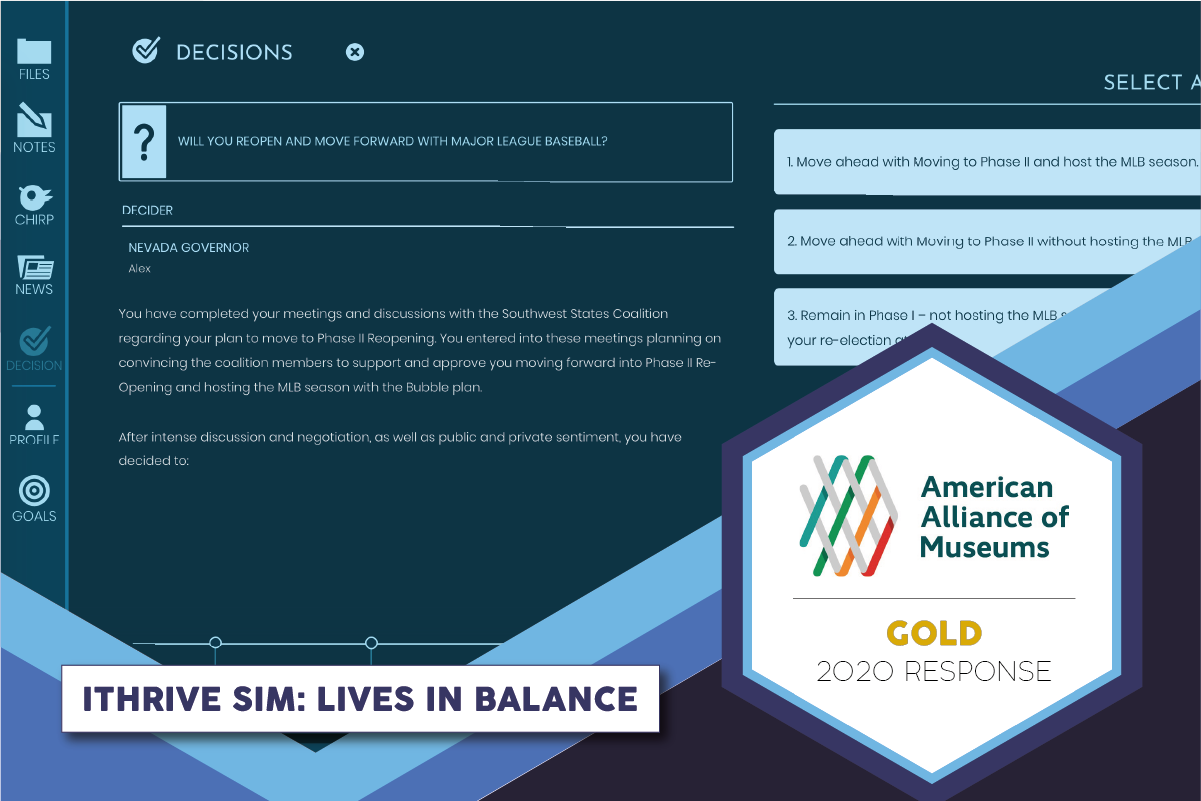
BOSTON-iThrive Sim: Lives in Balance has been named a gold award winner in the MUSE Award 2021's 2020 Response category. Created by iThrive Games in partnership with Ronald Reagan Presidential Library and Museum, iThrive Sim: Lives in Balance is designed to meet the need for engaged, authentic, and relevant learning experiences. This scenario thrusts the participants into a fictional, modern day pandemic where federalism comes to life as they take on the roles of government officials. The scenario has been successfully used with museum-based hybrid and virtual visitors, and in traditional educational spaces virtually, hybrid, and in person.
According to the website for the MUSE Awards, "The Media & Technology MUSE Awards recognize outstanding achievement in Galleries, Libraries, Archives or Museums (GLAM) media. Presented to institutions or independent producers who use digital media to enhance the GLAM experience and engage audiences, the MUSE awards celebrate scholarship, community, innovation, creativity, education and inclusiveness."
Susan E. Rivers, PhD, Executive Director and Chief Scientist at iThrive, sees tech-enabled role-playing as one of the most adaptable forms of interactive learning, whether it's in a classroom or at a museum, in person or online.
"When we created Lives in Balance, we sought to meet the tremendous demand for robust interactive learning experiences, especially during this global pandemic," she said. "And we are pleased to be able to offer this scenario and others as we head into the new school year to support learning in various settings."
iThrive Games offers two additional iThrive Sim civics scenarios for learners who are high-school aged and older: Leading Through Crisis, which explores responsible decision making during a critical event, and Follow the Facts, which explores media literacy during a natural disaster.
"I am grateful for our exceptional advisory board of educators and the students who have played with us and shared their wisdom," said Mira Cohen, Director of Education at the Ronald Reagan Presidential Library and Museum. "It's been a dream to empower youth learners with the decision-making tools to become thoughtful and caring leaders.
To learn more about iThrive Sim, visit https://ithrivegames.org/ithrive-sim/. To learn more about additional programs at Ronald Reagan Presidential Library and Museum, visit https://www.reaganlibrary.gov/.
###
Media Contact
Eghosa Asemota
eghosa.asemota[at]ithrivegames.org
About iThrive Games
iThrive Games prepares teens to thrive by meeting them where they are and working in partnership towards a world where all have the voice, choice, and agency to reach their full potential. We use games and game design to equip teens with the social and emotional skills they need to be healthy and resilient.
Burgeoning Journalists Try on Their Roles in New Media Literacy Game

Media literacy incentivizes good journalism. In early June, two dozen high school students enrolled in the Summer Journalism Institute at the Walter Cronkite School of Journalism and Mass Communication, Arizona State University, stepped into a simulated newsroom to play iThrive Sim: Follow the Facts and discovered this. Follow the Facts is a media literacy-centered, role-playing simulation game where players, acting as journalists, sift through information and sources to find and share the truth about a mysterious illness and an impending storm in New Orleans.
Playing the roles of Lifestyle Reporter, Metro Reporter, Government Reporter, Opinion Reporter, and News Editor, students (in teams of five) engaged with in-game social and print media, practiced effective sourcing of information, explored bias, and engaged in collaboration. In a collaborative gaming experience that combined media literacy skill-building, social-emotional learning, and civics education, the 24 students who played got the chance to:
- Describe how the media shapes public opinion and behavior.
- Collaborate to see the bigger picture of a situation and create accurate news.
- Successfully rank the quality and value of varying sources of information.
- Practice effectively sourcing information in a digital world, an integral media literacy skill in the 21st century.
- Become aware of and describe bias and its impact on reporting, selecting, and interpreting the news.
- Demonstrate self-management while under stress.
- Practice clear communication.
The burgeoning journalists were highly engaged. Halfway through the game, they shared their learnings around journalism and media literacy, such as:
- "[I learned] To pay attention to details, work in teams, [and] make important formal decisions."
- "I learned that it's important to gain public trust by putting out specific and true information."
- "I learned how to make beneficial decisions under pressure. It also gave me the experience of being a journalist."
- "I learned that journalists have to handle a lot of information at once and work together to make decisions."
- "[I learned] journalists have a limited amount of time and must prioritize what they think is the best thing to do."
- "[I learned] That you really need to communicate with your team to have all of the information."
- "I learned that getting the facts/right info depends on how you choose your sources."
- "[I learned] only take information from verifiable sources."
Staff were energized by the engagement and thoughtfulness of the players.
"It was validating to see the students really deliberating over the decisions in the game and collaborating with each other to make the best choice," said Michelle Bertoli, Senior Director of Learning. "There aren't easy answers, just like in real life. It's such a great opportunity to dig deep and practice managing your own attention and emotions while you work closely with others towards a common goal."
To close out the experience, iThrive staff will lead a debriefing session based on the pre-written curriculum that accompanies the media literacy-centered simulation game. Follow the Facts is now available for summer enrichment programs and other youth-serving experiences. Sign up today to play the game with your students!
Add Play to Your Summer School Schedule: Virtual Conferences in July

After an unprecedented year, summer school programs are underway in several states across the nation, with an increased focus on students' social and emotional health. Game-based learning uniquely aligns with the times. When games are used in the classroom, they offer students a space to immerse themselves in new information, actively apply that information while problem-solving, try on new perspectives, and work in self-directed independent ways. The connective power of games also supports community-building and empathy, making play a springboard for responsible civic engagement.
As school administrators and teachers explore ways to enrich their classrooms this summer and later this fall, we're excited to continue putting game-based learning and SEL front and center at upcoming conferences where iThrive staff will be presenting. If you're interested in bringing games to your summer school program or classroom next school year, here are some interactive meetings to put on your calendar this month:
2021 Games for Change Virtual Festival (Monday, July 12th to Wednesday, July 14th, 2021)
The 2021 Games for Change Virtual Festival will feature virtual sessions hosted by an array of thought leaders on the transformative power of games and immersive media. iThrive's Executive Director and Chief Scientist, Susan E. Rivers, Ph.D., will be part of a session titled "Disinformation Games," where she'll discuss iThrive Sim: Follow the Facts, our new role-playing simulation game that supports media literacy skill-building. Join in on the session happening on Wednesday, July 14th at 5:30 ET/2:30 PT for a rousing discussion by registering here.
2021 NASSP National Principals Conference (Wednesday, July 14th to Friday, July 16th, 2021)
The theme of this year's NASSP National Principals Conference is "Together, We Will," with strands centering on equity, wellness, and innovation. We're excited to share our vision of how play supports each of these strands with all who'll be in attendance. In our interactive session, attendees will play iThrive Sim: Lives in Balance, our online role-playing simulation game that focuses on federalism and states' rights and uses a pandemic as the backdrop for practicing negotiation and decision-making. Players, acting as state governors and federal officials, will be tasked with moving the action forward themselves, aided by online gameplay and iThrive Sim's dynamic tech. They must work individually and as a group to assess the information at hand, defend their points of view, and make decisions that produce the desired outcomes in time. Register here to attend this conference, get in on the game, and learn how play can enrich your summer school program or school this fall.
More Ways to Meet
This fall, we'll be back on the road, virtually and in person, to share more on games, play, and their contribution to students' academic growth and social and emotional learning. There are many ways to engage with us. Learn about our game-based learning curricula and role-playing simulation games guaranteed to boost student engagement in your summer school classroom. Send us an email. Or sign up for our newsletter to stay in the loop with exclusive playtesting opportunities.
We look forward to connecting with you!
History Informs Our Understanding of Our Country. Let’s Tell It Truthfully.

This June, the last surviving liberator of Auschwitz died at the age of 98. According to CNN, David Dushman was one of the soldiers who liberated the people being held at the Auschwitz concentration camp. Over time, Nazis murdered over one million Jewish people there.
As one of our staff read the article, she was reminded of meeting her college friend's grandmother, who was a Holocaust survivor and still bore the tattooed numbers on her body. Seeing the tattoo she had only read about in history textbooks was a visceral and impactful experience for her.
As survivors and liberators of atrocities pass away, it begs the question, who has the courage to tell their story? How do we keep history and the past mistakes in our collective minds enough so that we don't recreate them in the present or future? And, how do we do this in a way that supports healing and does not stymy it? What role does our educational system play in making sure students know about past societal harms so that they can learn from history and do their part to create a world where those types of atrocities no longer happen?
To us, these questions are worth exploring. Our Executive Director and Chief Scientist, Susan E. Rivers, Ph.D., has said that "Empowering teens as changemakers means engaging youth and communities in drawing on the past and present to create new knowledge." We think that teens are more than capable of contending with history to make choices that will result in a better future.
Teens' brains are undergoing the last major restructuring of development, one nearly on par with early childhood brain growth. That means the teen years provide the perfect opportunity to build habits to support a healthy, productive, and engaged life. Teens are at a developmental moment defined by many strengths. Because of where their brains are developmentally, teens are at a place where they can examine the role of race and racism in history and our society and then use that understanding to envision how to relate to one another in ways that move us forward, toward greater equity for all. One hallmark of the teen developing brain is an aptitude for risk-taking; they can leverage this inclination to envision and offer up completely new ways of working together, being in community, and participating in democracy.
Rather than viewing history as something to choose from selectively, teens are ready and willing to look at the whole with open eyes. And they can be supported in that when guided by skilled and compassionate educators in an educational system that promotes critical thinking and responsible participation in democracy.
At iThrive Games, we are dedicated to thriving. And for us, thriving comes from facing and acknowledging hard truths and tough emotions and choosing to contend with those truths and emotions in service of taking action to build a more equitable and just for all humans. Whether it's with our game-based learning units that explore identity and relationships or our 21st-century skill-building simulation games, we believe in creating opportunities for teens to learn from history and flex the muscles they'll need to envision and enact an equitable future where all can thrive.
Media Literacy and Responsible Civic Engagement Go Hand-in-Hand

We know that media literacy is essential. Misinformation and disinformation campaigns from various entities have influenced everything from our elections, public sentiment, and individual decision-making. Media literacy is part of the solution to combat misinformation. Educators who teach media literacy are helping students contend with important questions. How do we detect biases? What sources of information can we trust? How do we apply critical thinking to the information that we take in through written and visual media?
We think it's imperative that teens have the opportunity to practice media literacy in the classroom. Young people are curious, consume tons of media, and are more than equipped to think and talk through these hard questions. So we created iThrive Sim: Follow the Facts to assist educators in exploring media literacy in their classroom. In this role-playing simulation, students play reporters sifting through information and sources to find and share the truth about a mysterious illness and an impending storm in New Orleans.
iThrive Sim: Follow the Facts was created in collaboration with subject matter experts such as Elizabeth Smith, Assistant Professor in the Communications Division at Pepperdine University. We asked Ms. Smith to share her thoughts about the power of media literacy in the lives of young people.
Q: WHY DO YOU BELIEVE MEDIA LITERACY IS SUCH AN IMPORTANT TOPIC FOR HIGH SCHOOL STUDENTS TO LEARN?
A: I believe media literacy is an important topic for people of all ages because, like it or not, we are surrounded by media all the time. The more literate we can become, the better we will be at understanding the origin, nature, and effects of our media consumption. More specifically, I think it is critical for us to invest in news literacy education with all learners, starting in kindergarten. High school students show us that they are not uninformed about news topics but find that many news outlets do not cover topics that they find relevant to their lives. Additionally, many high school students are confronted with news being shared on social media but aren't always clear what makes credible news, how news information evolves (especially in breaking news simulations), and what to think of the work of journalists. However, as high school students grow into adulthood, they will be asked to make informed decisions that will rely on credible, rigorously vetted information as news is. Knowing who and what is high-quality news information will help these emerging adults make informed decisions and understand others better.
Q: WHAT ELEMENT DID YOU THINK WAS MOST IMPORTANT OR TRANSFORMATIVE IN ITHRIVE SIM: FOLLOW THE FACTS?
A: I think the most transformative element in iThrive Sim: Follow the Facts is making decisions about what information to share. This pushes students to make relatively quick decisions about what is correct. Sometimes the details that differentiate two different pieces of information are subtle, which means students have to pay close attention to make quick, timed decisions. They talk about these decisions with their teammates. I think two elements are important: 1) The decisions are timed, so they are making decisions about information to share in real-time, just as a journalist does but also just like they do when they are more casually using social media in their personal lives; 2) Discussing the decisions helps them to share and build knowledge.
Q: HOW DO YOU SEE MEDIA LITERACY SUPPORTING RESPONSIBLE CIVIC ENGAGEMENT?
A: Media literacy, but more specifically, news literacy, helps individuals understand what the news is and what questions to ask about news information. News literacy does not promote that individuals or communities should blindly trust the news. Rather, news literacy should empower individuals to ask good questions and understand the process behind reporting and news production.
Q: WHAT'S YOUR FAVORITE PART OF THE GAME?
A: Honestly, I love the whole thing! My favorite part of the game is watching teams work together and hearing the way they support each other to make solid, informed decisions.
BRING MEDIA LITERACY SKILL-BUILDING TO YOUR CLASSROOM
If you'd like to bring Follow the Facts to your high school classroom or summer program, let us know! You can sign up here to learn more information or to request a time slot for your class. The "news office" opens on Friday, June 25, 2021!
Learn about the Power of Play at these Upcoming Conferences

2021 SERIOUS PLAY CONFERENCE
The Serious Play Conference this year features different tracks and multiple sessions with the common theme of using games or simulations in training and education. Our session on Wednesday, June 23, 2021 from 2 to 3:15pm ET will be presented by Executive Director and Chief Scientist Susan E. Rivers, Ph.D., and Senior Director of Communications Nicole Taylor. Stress Storm/New Norm: How Role-Playing Simulations Can Help will explore how role-playing simulations can be used in the workplace to assist leaders in identifying opportunities for coaching people managers and staff members.
The ability to practice social and emotional skills such as self-management, emotional awareness, social awareness, and responsible decision-making under stress is necessary for a healthy culture and optimal performance. Being able to observe how leaders perform under stress is a high-value opportunity provided by role-playing simulations. Using iThrive Sim: Lives in Balance, Susan and Nicole will share how a role-playing simulation can be used both to observe stress behaviors, assist people managers in identifying and working with their stress response, and provide opportunities for coaching to improve how staff members manage themselves and others. If this lights you up, register here.
2021 ASCD CONFERENCE: EMPOWERED AND CONNECTED
The theme for this year's ASCD conference is Empowered and Connected. The annual conference is full of sessions that will accelerate your summer learning plans and help get you prepared for the school year. At our session, Susan Rivers will be joined by educators Paul Darvasi and Mira Cohen to present Play to Thrive: A Game-Based Approach to Social and Emotional Learning for High Schools. If you're heading to ASCD, this session will allow you to:
- Walk away with free, classroom-ready game-based social and emotional curriculum and tools to use immediately for in-person and distance high school humanities courses.
- Understand how game-based learning approaches align with teens' specific developmental, social, and emotional needs.
- Discover a roadmap for infusing core curriculum with playful, tech-supported interaction for high school students' social and emotional growth.
Sound useful for your classroom? Register for ASCD Empowered and Connected.
COALITION FOR JUVENILE JUSTICE (CJJ) 2021 ANNUAL CONFERENCE
The Coalition for Juvenile Justice (CJJ) is a nationwide coalition of State Advisory Groups (SAGs) and allies dedicated to preventing children and youth from becoming involved in the courts and upholding the highest standards of care when youth enter the juvenile justice system. At CJJ's 2021 virtual annual conference, iThrive's Susan Rivers, Transition HOPE's Janelle Ridley and iThrive youth designer Bernardo S. will be sharing a session on Friday, June 11th from 10 to 11:30am ET entitled "Designing Games with Youth Experts to Dismantle Unjust Systems." They'll share the story of youth game designers who created a game called The Run Around to delineate their lived experiences in the juvenile justice system and advocate for changes to it. They'll also share how decision-makers can bolster supports for the well-being of incarcerated youth. You can register for this event here.
MORE WAYS TO CONNECT
Next month, we'll share the conferences iThrive is presenting at for the remainder of the summer. There are many ways to engage with us, and we look forward to connecting with you.
Civics Ed and Social-Emotional Learning Today, A Stronger Democracy Tomorrow

A new report by the National Academy of Education, titled Educating for Civic Reasoning and Discourse, states that while content knowledge about our government's structure is important, so are the more subtle aspects that prepare us to participate responsibly in democracy.
"Also of crucial importance is the development of dispositions to value the exploration of complex issues, to consider multiple points of view, to weigh evidence and to empathize with others. So is the development of the ability to reason about moral and ethical issues rooted in basic democratic values. Such moral and ethical issues are often embedded in our democratic decision-making," writes Carol D. Lee, president-elect of the National Academy of Education, in a recent Washington Post article.
CIVICS EDUCATION, SEL, AND RESPONSIBLE, DEMOCRATIC DECISION-MAKING
At iThrive Games, we wholeheartedly agree, and we have created iThrive Sim scenarios for the classrooms where students work to build these skills. Responsible decision making is central to participation in democracy, from choosing whom to vote for to choosing how to engage during times of community and societal change. We have seen evidence over the last year regarding the importance of these skills, as the nation has contended with addressing systemic racism and police brutality, navigating the pandemic, and managing the fallout from the January 6th insurrection.
Our civics role-playing simulations are designed to support the development of the dispositions Ms. Lee writes about in the passage above. Core to the learning objectives of all three of our role playing simulations are the social and emotional learning competencies of responsible decision-making and self-awareness.
We create experiences, such as our Leading Through Crisis scenario, in which youth role-play civic engagement by doing the following:
- Practicing making high-stakes decisions with far-reaching consequences under time pressure.
- Demonstrating self-management while under stress.
- Collaborating with others who have different immediate goals.
- Practicing clear communication.
- Summarizing a decision-making approach, including exploring pros and cons for a set of choices and thinking about the impact of including or omitting the perspectives of different individuals and groups.
We believe that the decisions we make impact not only ourselves, but others, and our community. Our hope is that civics role playing simulations such as ours will help prepare teens to practice civic reasoning and discourse in the way we will need to do in order to create the future we want.
Click here to learn how to bring an iThrive Sim virtual field trip to your classroom.
iThrive Sim: Lives in Balance Named a 2021 GLAMi Award Winner
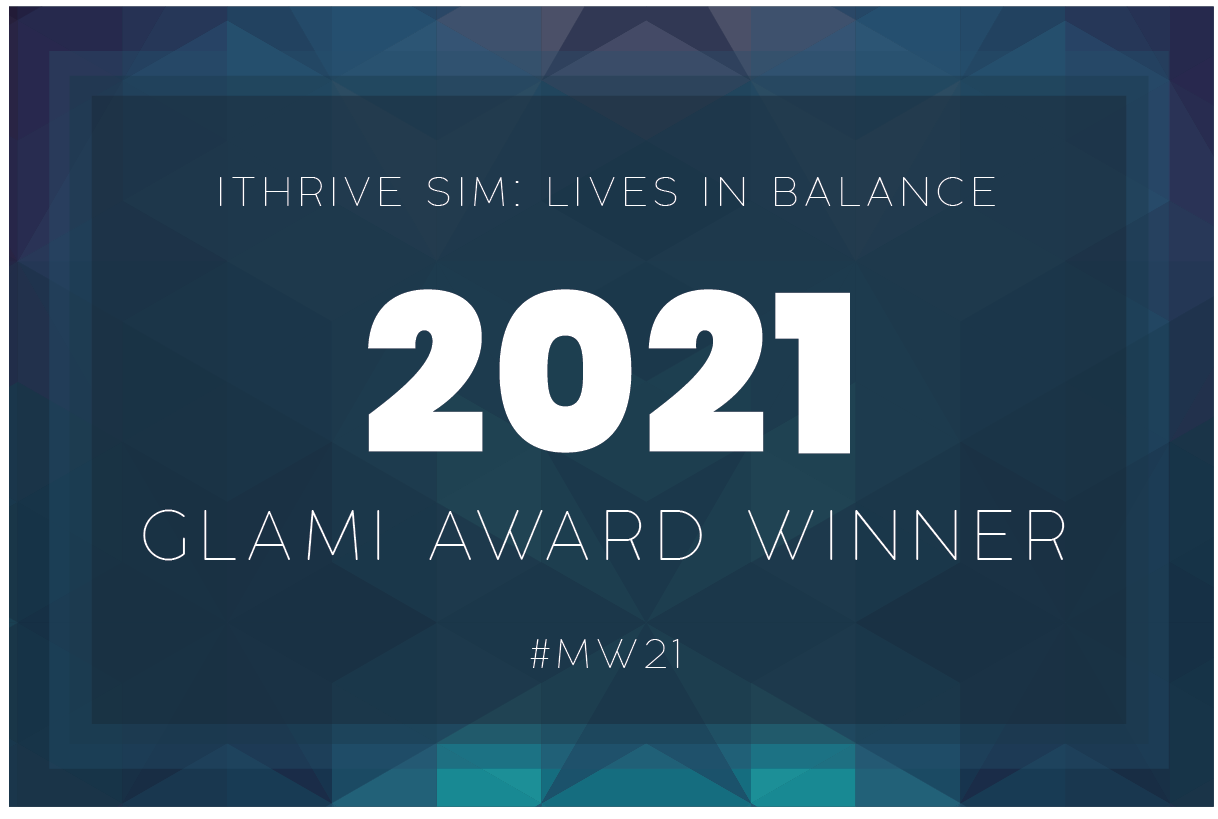
BOSTON--iThrive Sim won a bronze award in the GLAMi Award 2021's Interactive and Immersive category. Created by iThrive Games in partnership with Ronald Reagan Presidential Library and Museum, iThrive Sim is an innovative virtual augmented reality experience that provides an opportunity for meaningful and engaging experiences. The sim is currently used with museum-based, hybrid, and virtual visitors, and in traditional educational spaces.
According to the website for MuseWeb, the host of the GLAMis, "The annual GLAMi (galleries, libraries, archives, and museums) Awards recognize and celebrate innovative projects in the cultural heritage sector."
Susan E. Rivers, PhD, Executive Director and Chief Scientist at iThrive, sees immersive games as a true opportunity to support visitors in social and emotional learning: "Play is important for all of us," she said. "It brings us together in community. Play helps us create new solutions to problems...solutions we wouldn't have thought of otherwise."
iThrive Games is pleased to offer three iThrive Sim civics scenarios for learners who are high school aged and older: Lives in Balance, which explores collaboration and compromise during a pandemic, Leading Through Crisis, which explores responsible decision making during a critical event, and Follow the Facts, which explores media literacy during a natural disaster.
Mira Cohen, Director of Education at Ronald Reagan Presidential Library and Museum, says the virtual simulation was an important way to keep visitors connected during the pandemic, and beyond. "Through engaging audiences in meaningful and fun in-depth experiences, using historical records and government documents, we are able to increase our audience base, keep our current audience base engaged and further appreciation for the value of record keeping to our democracy, she said."
To learn more about iThrive Sim, visit https://ithrivegames.org/ithrive-sim/. To learn more about additional programs at Ronald Reagan Presidential Library and Museum, visit https://www.reaganlibrary.gov/.
###
Media Contact
Eghosa Asemota
eghosa.asemota[at]ithrivegames.org
About iThrive Games
iThrive Games prepares teens to thrive by meeting them where they are and working in partnership towards a world where all have the voice, choice, and agency to reach their full potential. We use games and game design to equip teens with the social and emotional skills they need to be healthy and resilient.
iThrive Sim Named a Finalist for Two 2021 EdTech Cool Tool Awards

FOR IMMEDIATE RELEASE: April 6, 2021
BOSTON—iThrive Sim is an EdTech Awards 2021 finalist in the categories of Games for Learning/Simulation Solution and New Products and Services. Created by iThrive Games and developed in partnership with the makers of the Situation Room Experience, the civics-based role-playing simulation features scenarios that make civics come alive for teens.
"iThrive Games believes that games and game design can help equip teens with the social and emotional skills they need to be healthy and resilient," said Susan E. Rivers, Ph.D., Executive Director and Chief Scientist at iThrive Games. "We are honored to be recognized for creating a tech-enabled role playing game that supports educators in creating engagement around civics—one of the most important topics in the classroom today."
The EdTech Awards recognizes people in and around education for outstanding contributions in transforming education through technology to enrich the lives of learners everywhere. Celebrating its 11th year, the US-based program is the largest recognition program in all of education technology, recognizing the biggest names in edtech.
"The worldwide pandemic put education and training to the test, but remote learning and working—in many unexpected ways—ultimately brought us closer," said Victor Rivero, who as Editor-in-Chief of EdTech Digest, oversees the program.
As a finalist, iThrive Sim and the other finalists and winners were selected from the larger field and judged based on various criteria, including pedagogical workability, efficacy and results, support, clarity, value and potential.
"We are pleased to see iThrive being recognized for its offerings for teens and educators," said Dorothy Batten, Founder of iThrive Games. "And we are inspired to work even harder to support teachers in embedding social and emotional learning in core content."
iThrive Sim can be used in virtual, hybrid, or in-person classrooms. Visit iThrivegames.org to learn more about iThrive Sim.
###
MEDIA CONTACT
Eghosa Asemota
eghosa.asemota[at]ithrivegames.org
ABOUT ITHRIVE GAMES
iThrive Games prepares teens to thrive by meeting them where they are and working in partnership towards a world where all have the voice, choice, and agency to reach their full potential. We use games and game design to equip teens with the social and emotional skills they need to be healthy and resilient.
The Science of Political Division and How SEL Skills Respond to It

It's no secret that division and political sectarianism are on the rise. How and when do they spill over into the classroom? As teachers teach civics, their role is to highlight the work of participating in democracy. Though they are not advocating for one party over another, the end goal is to help students understand how each person can responsibly engage in democracy.
This video from the Washington Post sparked in us a few ideas about how tools such as our role-playing simulation platform, iThrive Sim, might help teachers give students the opportunity to practice bridging this division and come to shared understanding.
First, experts in the video share a few of the building blocks of political division:
- Othering: Seeing people as part of an out group, and having a favoritism for the in group
- Aversion: Having a deep distaste or dislike for the out group
- Moralization: Seeing people from the out group as on the other side of a moral divide and having different values than you
These components of political division can make us feel threatened by what we perceive as the "other side," activating our fear response. An unchecked fear response can result in a range of behaviors, from not talking to or associating with those you perceive to be on the "other side" to out-and-out violence. This cycle is exacerbated by an eroded sense of shared reality (which will sound familiar if you read the RAND report on Truth Decay).
The experts offer a few suggestions for interrupting this cycle of political division:
- De-escalate conflict by talking about values that the other person cares about
- Take a step back and do a gut check to see if the threat you're feeling is real or perceived
- Ensure you still see the humanity in the other person and are not seeing them as a caricature
Interrupting the Cycle of Political Division with SEL and Play
We believe that the connective power of play supports the nurturing of social-emotional skills that help interrupt cycles of political division. Our civics-centered role-playing simulations are built on this belief, helping teachers prepare students to navigate conflict as they engage in democracy today and in the future.
Our SEL-rich role-playing simulation, iThrive Sim: Lives in Balance, invites students to play the role of government officials who are navigating making the best possible decisions for their constituents during a pandemic. Students practice social-emotional skills aligned with interrupting the cycle of division, such as:
- Describing the balance of individual rights and responsibilities in an organized society
- Practicing negotiating and compromising with people who don't share their point of view
- Advocating for their own and others' interests
- Demonstrating self-management while under stress
Additionally, our social and emotional learning-focused curricular surrounds support students in practicing emotional awareness and doing deep reflection. To learn how to bring this free experience to your classroom, visit our website.
We know this isn't the solution to the deep divide that teachers help students learn to navigate, but we see it as a step toward our desired future—a future that upholds democracy, regardless of political affiliation, while creating an equitable environment for all.
Conflict Resolution: Using Role Play to Practice Disagreeing Respectfully
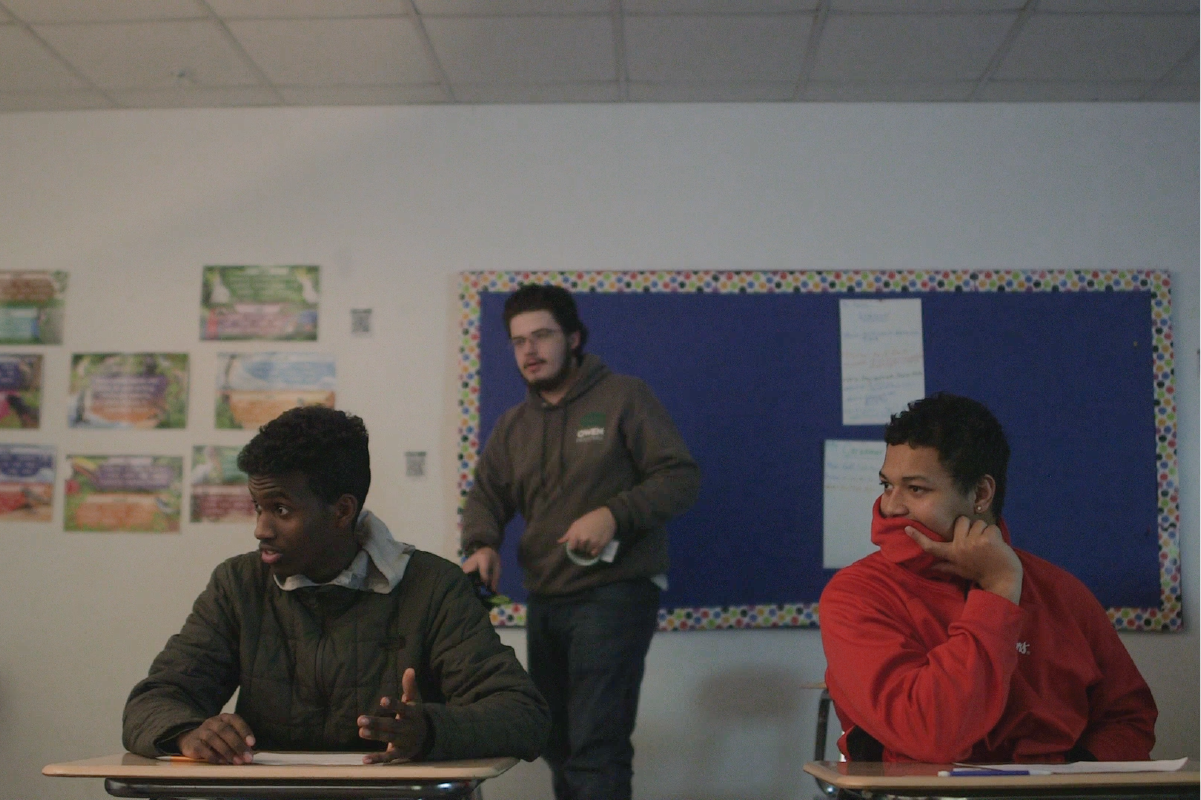
Solutions to big problems can arise from good debate. There is power in learning to disagree well, which we believe means maintaining respect for the humanity of the other person. A foundational aspect of our view that high school civics skills are skills for life is that disagreeing well is part of being an active participant in democracy. And being able to resolve conflict is part of being in relationship with others.
The good news is that disagreeing well is a skill that can be taught, especially in the context of play. Teens today benefit from game-based educational experiences such as iThrive Sim, which teaches them how to disagree with respect so they and their peers can solve problems by collaborating across different perspectives.
When we look to science to see how to disagree well, one theme that comes up is to find common ground. A recent study in Nature Neuroscience found that when volunteers agreed, they had more confidence in their own decisions and the decisions of others, and when they disagreed, they began to have less confidence in the view of others. This may seem anecdotally obvious (been in an argument lately?) but it does point a way toward disagreeing well-and that is to find common ground. Many disagreements, when we take the time to dig deeper, may have some hidden overlapping beliefs.
With iThrive Sim, high school students practice finding common ground through role-playing scenarios. In our Lives in Balance scenario, students play the role of government officials trying to decide how to govern during a global pandemic. We have watched hundreds of students play the game and find ways to practice conflict resolution as they discuss different decisions. The most interesting playtests are those in which the students begin to grapple with what they have in common even as they debate their competing interests.
Lives in Balance enriches social studies and civics classes as teens try on negotiating and compromising with people who don't share their point of view and they balance advocating for their own and others' interests—all while practicing responsible decision-making.
We are also playtesting two new scenarios: Leading Through Crisis, where students play members of a crisis response team grappling with the 25th amendment, and Follow the Facts, where students play journalists practicing information literacy as they report on a natural disaster with differing accounts of what's true.
Bring Lives in Balance to your class or contact us to playtest our other two scenarios.
2020 Annual Report: A Year of Play, Co-Creation, and Community
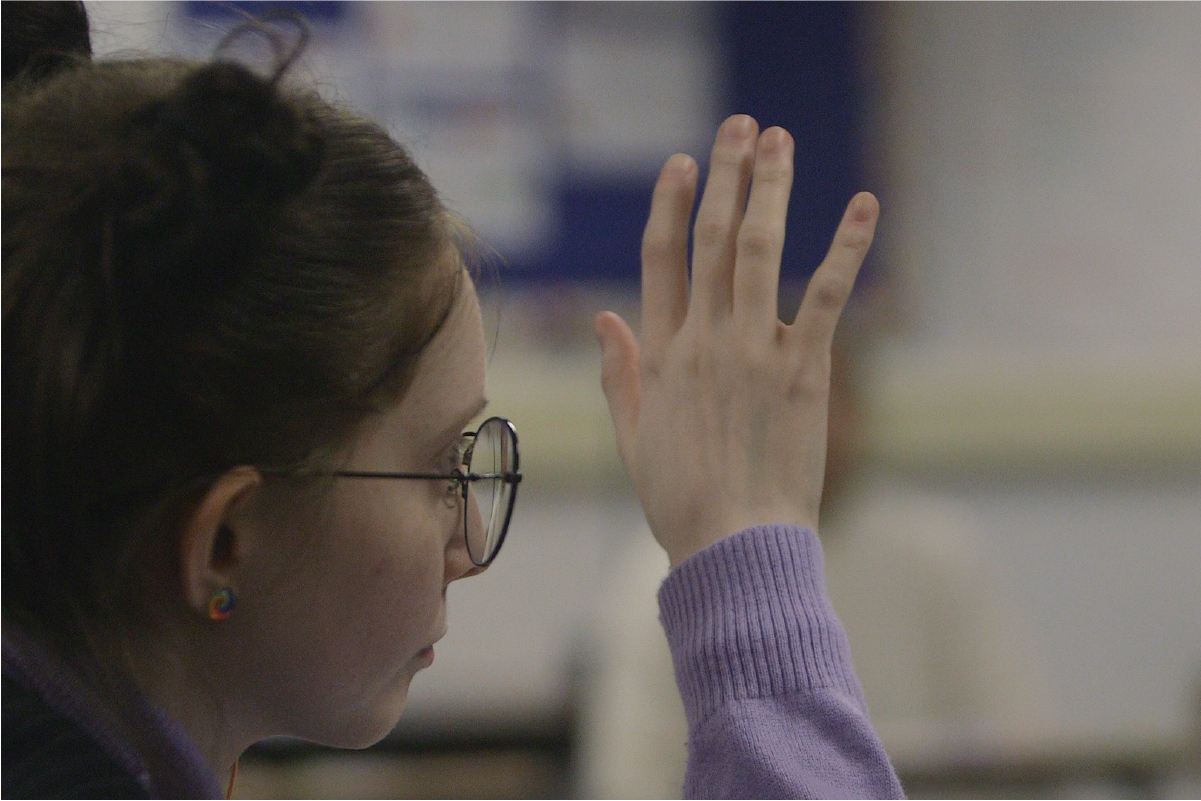
The strands of iThrive's DNA are composed of understanding the power of play. Social and emotional learning. Belonging and engagement in the spaces where teens are. Being teen and educator-centered.
Thank you to each of the teachers, teens, and collaborators who share those same building blocks at their core. Here are our highlights from last year:
- We appreciate the 120 of you who downloaded iThrive Curriculum: Sam's Journey and/or iThrive Curriculum: Museum of Me.
- Shout out to the over 400 teens who playtested iThrive Sim: Lives in Balance.
- High five to the teachers who completed over 90 play sessions of iThrive Sim in their classrooms.
- Game developer friends, we see you. Thanks for downloading our game design kits over 250 times last year.
- Parents and other adults, we appreciate your interest in our game guides, which you downloaded over 130 times.
For more information on how we are working to further our mission of using games and game design to equip teens with the social and emotional skills they need to be healthy and resilient, the tools that support and protect their mental health and well-being, and the systems thinking they need to recognize inequity along with meaningful opportunities to imagine and design a better world, view our annual report.
Purpose: Helping Students Explore How to Impact the World Around Them

The riot at the Capital and other events over the past two weeks have made many who wish to uphold democracy think, "I wish there was something more I could do." Meaningful changes happen in this world when people combine their unique passions and skills into collective actions.
At iThrive, we make tools to help high school educators create civics-centered contexts for teens to practice social and emotional skills, preparing them for meaningful and transformative civic engagement in three primary areas: self, community, and the world. Last week, we shared a tool for presencing feelings in the classroom to help teachers support students in cultivating emotional awareness in times of crisis. This week, we are thinking about tools for the community and the world. We have found that exploring purpose can help high school students begin to navigate how they are best suited to contribute to their community and to the world.
Seeking to define a purpose — where things we love and are skilled at overlap with a need in the world — is an important developmental step for teens and one that contributes to greater well-being. Teens shouldn't be rushed to choose a purpose, but they do need plenty of opportunities to consider and experiment with what resonates deeply with them and motivates them to give their best.
Activity: The World
For educators, giving students an opportunity to tap into their sense of purpose may be one antidote to the difficulties our society is facing. Try opening your next class with this brief set of prompts that students can journal about or discuss in pairs:
- What's an issue or challenge in the world I care a lot about? What makes me say, "I wish I could do something?" (e.g. preserving democracy, achieving racial justice, eradicating poverty, ensuring animal welfare, etc.)
- What's my vision for the world in 10 years, as it relates to this issue?
- What unique ability, strength, talent, or skill do I have that I can start contributing to this vision?
- What's one small step I can take in the next week to use my skills in the service of this vision?
Taking it Forward
At iThrive, we believe that since civics is social and emotional, we should teach it that way. We hope this tool is helpful for assisting students in exploring how they might engage in civics from a place of purpose, now and in the future. Learn how we're using play, SEL and tech to prepare high school students for transformative civic engagement.
An Insurrection Happened. Here’s an SEL Tool to Help Students Process It.

On January 6th, a mob stormed the Capitol building to halt the work of governing the United States of America-specifically the work of certifying incoming president Joseph Biden as the winner of the 2020 election. The news was filled with images of an angry mob of people, some holding confederate flags, descending on the Capitol building, gaining access to it, vandalizing certain offices, removing property, and antagonizing police and government officials. We were shocked and dismayed at scenes of government officials cowering under desks while the mob tried to gain access to them.
That day or the next, teachers did the work of helping students to make sense of what they saw, to process their feelings about it, to put it in a historical context, and to practice media literacy. We are grateful to every teacher who shouldered this heavy lift.
Here at iThrive, as we did our own processing of what we were seeing, many of us were struck by emotions not only associated with the event at hand, but also emotions associated with variance in how those participating in the insurrection were treated and what might be at the root of the difference in how they were treated as compared with protesters who were marching for Black lives. So there were feelings upon feelings to be present with.
At the behest of our Executive Director, Dr. Susan Rivers, we turned to a tool that we use often to get present with how we feel. It's our version of a tool created by Dr. Kathlyn Hendricks of the Hendricks Institute. We offer it below, for adults to process and then for adults to use with the youth in their lives, specifically teachers with students.
We hope that this social and emotional learning (SEL) tool is of support in the days and weeks to come.
Activity: Befriending Feelings
This exercise can be used to get present with the emotions you are feeling and to experience them fully without feeling the need to take action immediately. Choose an issue or situation or event that you'd like to explore.
- For a few minutes talk about (or journal about) your thoughts and feelings about the situation.
- Turn your awareness to your body. Having just expressed yourself, notice what you feel in your chest and throat area. Write that down or draw how you feel. Notice how you feel in your upper back and neck area. Write that down or draw how you feel. Notice how you feel in your belly area. Write that down or draw how you feel.
- If you noticed sensation in your chest and throat area, complete the following sentence: "I feel sad that ______."
- If you noticed sensation in your jaw and shoulders/neck area, complete the following sentence: "I feel angry that _____."
- If you noticed sensation in your abdominal area, complete the following sentence: "I feel scared that ______."
- If you noticed sensation in multiple areas, try completing each of the sentences.
- Take a moment to appreciate that you gave yourself the time and space to be with your feelings. Noticing how you feel is an important step to take before you take any action. Think of a person or a place where you feel safe and loved. Allow yourself to feel that sense of safety and love for yourself for being okay with having big feelings.
DOWNLOAD THE BEFRIENDING FEELINGS ACTIVITY (PDF)
At iThrive, we believe that since civics is social and emotional, we should teach it that way. Learn how we're using play, SEL and tech to prepare high school students for transformative civic engagement.
2020 Wrap-Up: A Gameful Year of Connection, Creativity, and Play
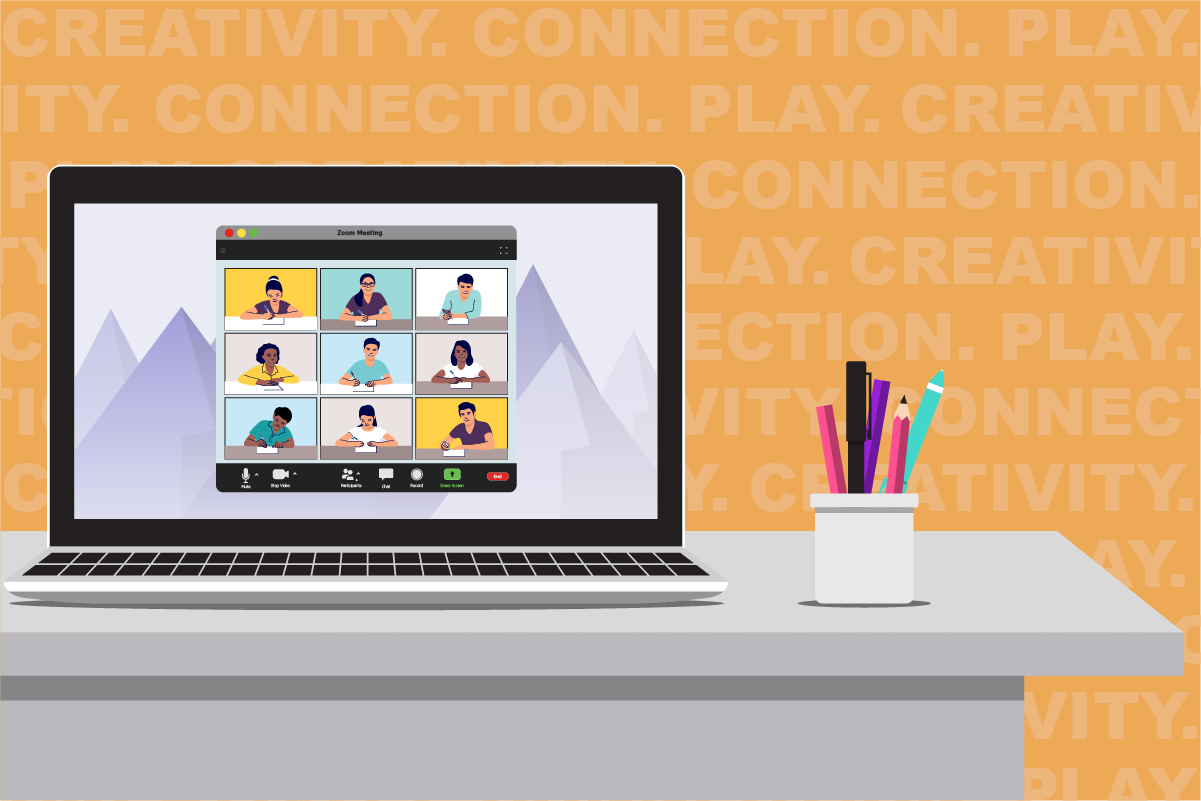
2020 was not an easy one by anyone's standards. Educators scrambled to learn how to deliver distance learning and to change all of their lesson plans to an online format. Students struggled with the loss of much of their in-person social life and with the transition to learning from home. Parents managed working while trying to help their children with online learning. And nationally, as we grieved our pandemic-related losses, we also collectively faced systemic racism, with many finding ways to begin to make changes from where they stood.
While not easy, there was still the opportunity for social and emotional learning and joy in 2020. Whether we found new ways to connect with family and friends through play online or whether we had a lot of obstacles to overcome, we made it—because we are still here.
Like everyone else, at iThrive we had our ups and downs and lots to adjust to in 2020. We were happy to officially release iThrive Curriculum: Museum of Me, to collaborate with educators on the creation and release of iThrive Curriculum: Sam's Journey, to playtest our new role-playing simulation, iThrive Sim, with over 400 students, and to collaborate with our colleagues at the Situation Room Experience to create the civics-based Lives in Balance and Leading Through Crisis scenarios for our simulation game.
We appreciate you for the many ways you engaged with us, whether it was downloading one of our game-based learning units, attending one of our webinars, playtesting our role-playing simulation, or reading our articles. Below are the blog posts you read the most this year.
Top Five Blog Posts of 2020:
- Social Distancing and Staying Connected Through Games: Read about how playing games together at home can relieve stress, bring joy, and foster connection.
- Urban Assembly Students Create COVID-19 Choose-Your-Own-Adventure Story: Read about our first virtual Game Design Studio, held with students from Urban Assembly. We co-designed an interactive story game reflective of the students' experiences navigating the social upheaval of the pandemic.
- COVID Self-Care Package: Practicing #SELatHome: Try out our 14-day challenge to practice social and emotional learning (SEL) and self-reflection at home. Social and emotional skills are even more useful in times of confusion, crisis, and abrupt change.
- Games to Play While Social Distancing: MMORPGs: Read about how massively multiplayer online role-playing games (MMORPGs) can be a safe space to wander, explore, and connect with others.
- Staying Connected While Social Distancing: Games for Emotional Coping: Take a look at our gameful recommendations to help you practice self-care, savor life's best moments and experiences, and turn inward to explore, accept, and express what's challenging about this moment.
We hope that each of you has a wonderful holiday season. We'd love to stay connected with you. Click here to receive our monthly newsletter with resources and updates. Here's to more creativity, connection, and play in 2021.
Civics Is Social and Emotional. We’re Using Play to Teach It That Way.

The events of 2020 have forced into the national consciousness the foundational need for both responsible civic engagement and attending to young people's social and emotional well-being. As the pandemic and its ripple effects have endured, social and emotional connection and skill development have become a non-negotiable anchor for many school communities. At the same time, the power of individual choices to impact the well-being of whole communities has been thrown into high relief.
It is timely that in the past few years, thinkers and practitioners at the leading social and emotional learning organization (such as CASEL) have prioritized connecting young people's social and emotional competencies to larger questions of civic responsibility and justice. CASEL defines transformative SEL as "a process whereby students and teachers build strong, respectful relationships founded on an appreciation of similarities and differences, learn to critically examine root causes of inequity, and develop collaborative solutions to community and societal problems." This definition aligns with iThrive's view that civics is social and emotional, and that social and emotional skills enable responsible civic engagement.
iThrive embeds social and emotional learning opportunities into civics role-playing simulations for high school students through iThrive Sim, a role-playing platform and accompanying SEL-rich scenarios that invite teens to experience the very human factors in all civic endeavors in a visceral way.
We see educators creating civics-centered contexts for teens to practice social and emotional skills, preparing them for meaningful and transformative civic engagement in three primary areas: self, community, and the world.
Self
At the intrapersonal level, all students must be able to see themselves — and believe they deserve to be seen — in the story, purpose, and future of our democracy. The stories we tell in classrooms, both in words and in actions, must enhance self-awareness by reflecting the diversity of the students we teach. This can spark in all students, and particularly those traditionally excluded from mainstream education, a sense of belongingness, motivation, and efficacy to engage in the democracy we all must steward into the future.
Community
Interpersonally, students (and all adults) must come to view individual and cultural differences as rich assets. They also must cultivate self-management, social awareness, and relationship skills, including the ability to manage discomfort and pause to investigate their habitual biases in order to fully see those with whom they disagree. Without these skills, we cannot hope to meet on common ground to tackle our society's most intractable challenges.
The World
Students must both see and understand systems of injustice and foster the beliefs and skills needed to advocate for changes that make a more just society for themselves and others. They should develop the skills to make responsible decisions that enhance not only their own best interests but the interests of the collective, global community. A genuine concern for the just and ethical treatment of all members of our society starts with seeing ourselves in each other, and believing that we all deserve to play an important role in realizing our country's highest ideals.
If we consider school communities as microcosms of democracy, wherein we norm and enact the values of our civic society writ large, the fact that civic and social and emotional values are the fabric of school environments becomes obvious. The question is whether or not we are making them tangible, speaking about them directly, and using them to elevate learning and connection. We have a responsibility and an exciting opportunity to do so.
Virtual Classroom Management Tips: Supporting Connection With Play
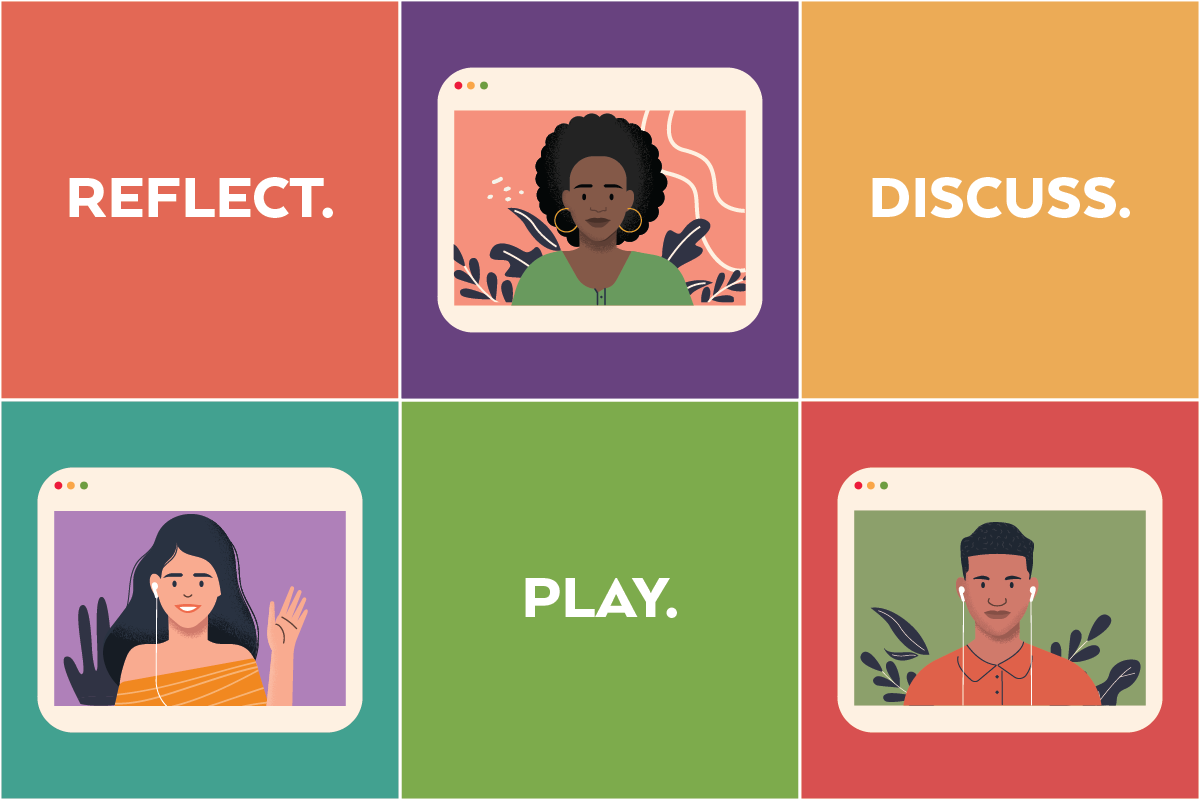
The move to remote learning highlights some of the limitations of a virtual classroom. Trying to build resonance and create connection among people over video conference requires intentionality.
At iThrive, we see interpersonal connection as a sense of warmth, belonging, feeling seen, and feeling respected. In virtual environments, cultivating this requires some different strategies than we use when we're in person. As part of the curricular surrounds for our new virtual civics game, iThrive Sim: Lives in Balance, we have created a number of ways to support teachers in building this intentional connection.
We appreciated the work of the game-loving experts behind Zoom Jam, presented by USC Games and Situation Lab in partnership with The Higher Education Video Game Alliance. We included Mute-iny, our favorite game from Zoom Jam, as part of an activity teachers can do at any point, but particularly before engaging in online play, such as our role-playing experience. This activity can help to focus attention on how each class member can contribute to an inclusive and engaging virtual space.
Step 1: Reflect and Discuss
Share with students that to stay connected from a physical distance in the virtual classroom, you might need to use some different strategies than you use when you're together in person. Ask students to reflect and share:
- What does feeling connected mean to you?
- This year as we have practiced social distancing, how have you stayed connected to friends and family?
Step 2: Tune in Through Play
- Introduce the lip-reading game Mute-iny and orient students to it with something like, "Let's see how closely we can pay attention to one another."
- Play Mute-iny. This simple game works with any video conferencing software with video and chat functions.
- Have each student who'll be playing prepare one sentence that they will say on mute while others try to guess what they are saying.
- Tip: You may want to have each role-play group of 6 play this game together in breakout rooms (if that is allowed in your school). If you want to play as a whole class, ask 6 students to volunteer to say sentences while the rest of the class guesses what they're saying.
Directions (Source: https://zoomjam.org/):
- Everyone is muted, and the volume is turned down.
- Pick an order for people to go (for instance, number each person 1, 2, 3, 4...).
- One person starts by counting down from 3, then says a sentence really slowly.
- Everyone else - type and send your response to the group chat and see what everyone else said!
- Have the next person signal or post in the chat that they're starting, and repeat steps 3-5 until everyone has had a chance.
- Once everyone has finished their turn, unmute yourselves and reveal your sentences!
Step 3: Briefly Discuss
- Ask students to reflect and share: What did you notice about how we connected and tuned into each other while we played Mute-iny?
What strategies have been working for you to enhance connection in your classroom? We love hearing from you, so if you'd like to share, email us at contact@ithrivegames.org. And be sure to visit our website to learn more about using iThrive Sim, our role-playing simulation, in your high school civics class.
Help Us Innovate Civics with Play and SEL: Vote for iThrive Games at SXSW EDU
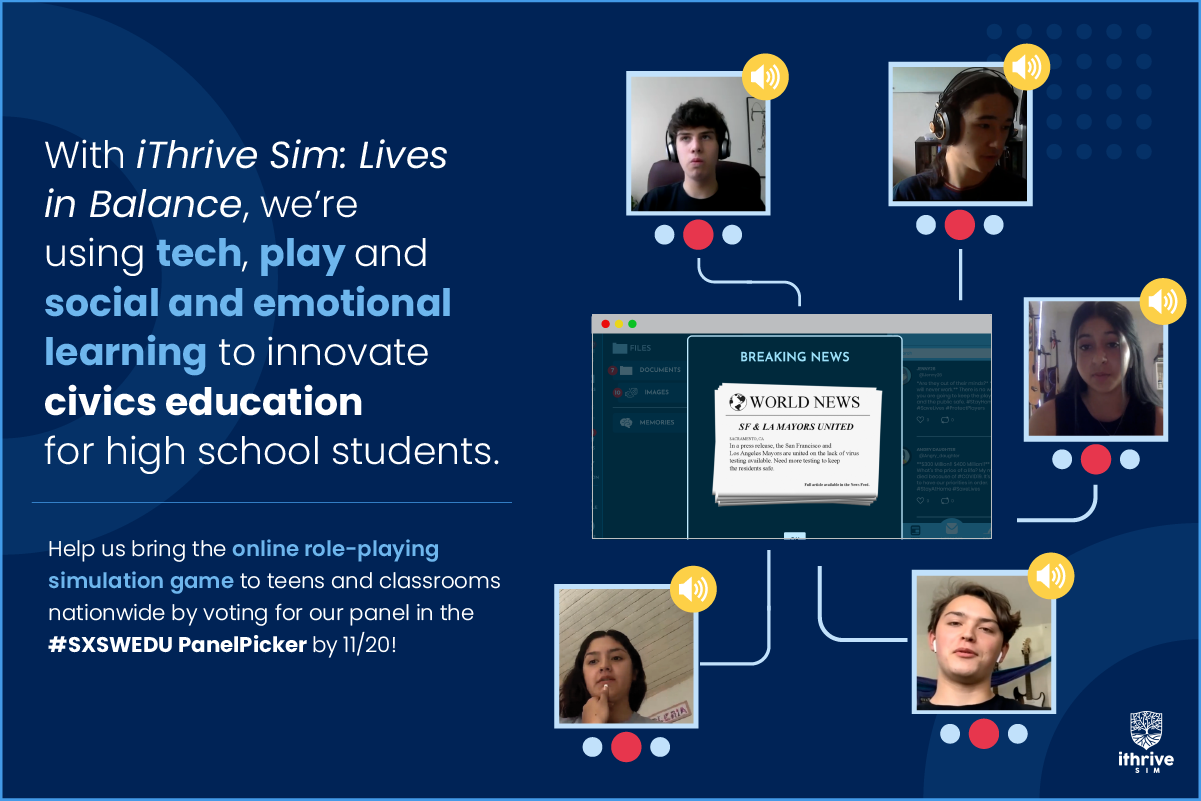
VOTE FOR OUR PANEL IN THE #SXSWEDU PANEL PICKER!
We need your vote to help us share our role-playing simulation game, iThrive Sim: Lives in Balance, with thousands of educators at SXSW Edu 2021. Our session will demonstrate how we link civics learning with social and emotional learning in an exciting format that deeply engages high school students. Audience support helps panels get chosen, so please click here to vote for ours and play a part in activating teachers around student-led civics learning.
Our panel will feature our own Susan Rivers, PhD, iThrive's executive director and chief scientist, along with Mira Cohen, director of education at Ronald Reagan Presidential Library, and Malcolm Foley, expert educator and counselor at Academy of Scientific Exploration. The presenters have each played a key role in developing and testing the simulation with students and teachers. They will share how this unique simulation experience is enriching and reshaping civics learning.
The secret sauce in any great civics course is personal relevance. Lives in Balance gives students the chance to access and apply data, knowledge, and skills in real-time as they collaborate, debate, compromise, and negotiate with peers to solve problems based on historical events. When students learn civics through hands-on experiences that also support social and emotional learning, like Lives in Balance, they begin to see themselves as decision-makers and critical members of a well-functioning democracy.
If you are inspired by this vision of experiential civics learning, please pick our panel. Vote here (you'll need to take a few seconds to create an account in order to vote). And if you're curious to learn more about iThrive Sim: Lives in Balance, visit here. Hope to see you online next year at SXSW Edu.
Civics and Gameplay: What Teens Say About iThrive Sim: Lives in Balance
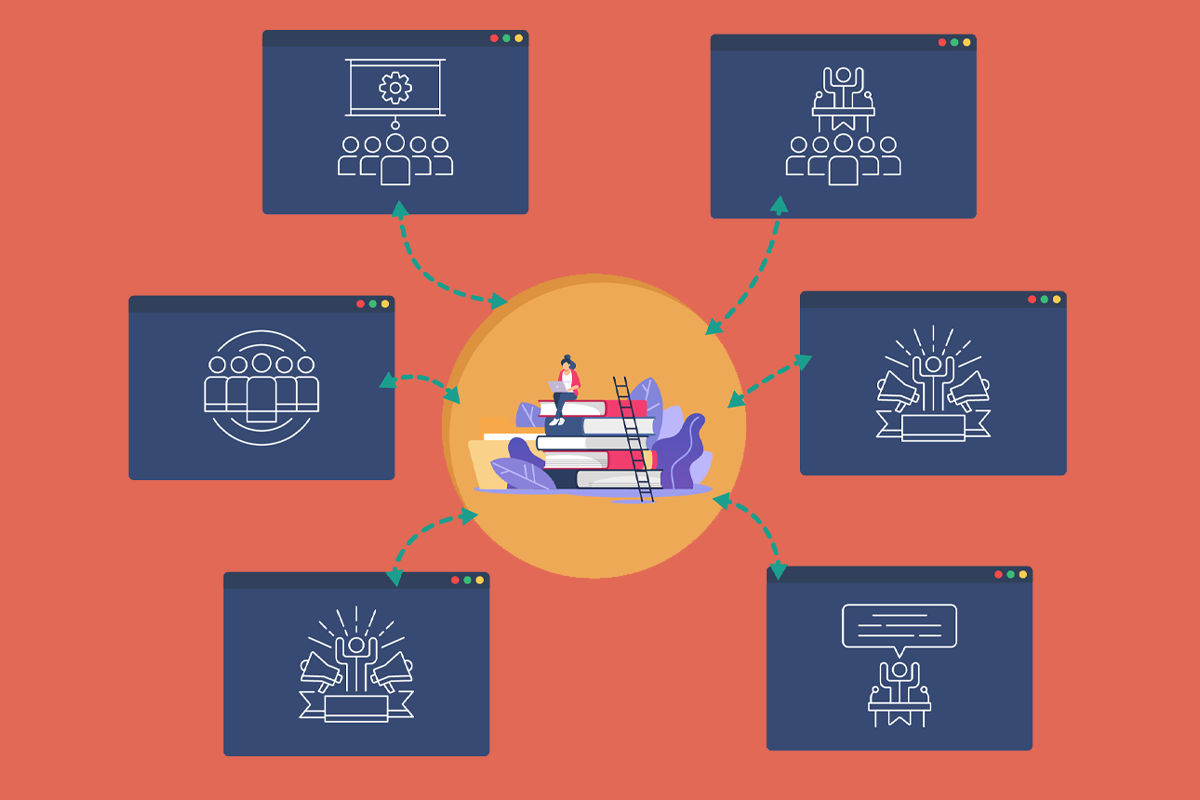
This Spring, over 60 students from the Los Angeles area playtested iThrive Sim — a robust web-based digital platform, created in partnership with the makers of the Situation Room Experience, that supports role-playing simulations as a powerful learning approach for civics. The students played the Lives in Balance scenario, which was created in response to the COVID-19 pandemic. The scenario focuses on the constitutional issue of federalism using a pandemic as a backdrop.
In both pilot rounds, students said that they found Lives in Balance to not only be fun and engaging, but also educational and thought-provoking. They shared that gameplay allowed them to think from different perspectives, participate in governmental decision-making processes, learn more about civics and engage in critical thinking-specifically about the impact of their decisions.
When asked what they'd tell their parents about participating in civics-based scenario, students offered the following perspectives:
- "I got the chance to stand as someone who is important in the decision-making process for a national crisis. It was fun and I would definitely do it again."
- "It's an educational game that showed me different perspectives on the topic and expands one's ability to reason and debate an idea."
- "It was really beneficial and a great way to learn more about the government and how it functions/makes decisions."
- "It was a fun experience working as a team."
- "...it prepares students for real-life situations/issues."
The main highlight of the experience for students was how interpersonal it was—many commented how much they enjoyed the discussions and debates with their peers in different roles. In this era of distance learning, interpersonal is key, as that's the component of education that was drastically reduced when school moved from the classroom into an online context.
With regard to learning outcomes, students in the first pilot focused on two: gaining new knowledge and critical thinking skills. Knowledge-based outcomes included how government and politics work, the nuances of civics-based concepts and the complexity of a pandemic. Critical thinking skills included being able to clearly state and advocate for one's opinion, understanding the process of decision-making, and learning how to prioritize different goals and work together towards a common goal.
Students in the second pilot homed in on what they learned about decision-making processes and how to navigate different perspectives. They described the difficulty of contending with making decisions because of their impact on the constituents and struggled with not knowing what kind of outcomes they would lead to. Additionally, students described how taking on the role of those in government helped them view civics-related issues from a different perspective, and to wrestle with the power of their positions.
At iThrive, we see playtesting as an element of co-design with teens. We invited the students to also describe any challenges they felt during gameplay so we could use that information to iterate improvements to the game. Some students described a desire for more time to read the materials and information in order to come to a more informed decision. Others enjoyed the time limit of the game, as this required them to come to a decision faster, rather than continuing to debate. Many students found the continuous pop-ups and files to be useful, as they provided them with new information, but some suggested the information should flow at a slower pace. This feedback guided modifications to the content and the gameplay experience.
At the completion of gameplay, almost every student said they would recommend or highly recommend the game, as a tool for connection, fun and civics education. Teachers offered feedback such as, "It's exactly what we need in classrooms, structured debate."
Lives in Balance is undergoing a large scale pilot this fall. Sign up here to pilot this scenario with your students.
Role-Playing Simulations Offer Unique Opportunities for Teen Engagement

Educators have long used role-playing simulations to give students direct experience of academic subjects, whether it's as decision-makers during the Great Depression in a U.S. history class or as bankers or business owners in an economics class. Our approach to role-playing simulations is unique-we embed social and emotional learning and integrate technology. Role-playing simulations are of great benefit to educators and teens because of the varied opportunities they present for student engagement.
Here are six benefits of using role-playing simulations:
1. They engage students in a new way of learning. Students, especially at the high school level, get too few opportunities for experiential and embodied learning. Role-playing simulations invite them to interact with each other and with content in a hands-on way that leaves a big impression. Over 50 years of research on role-playing methodologies shows that role-playing is excellent for getting students interested in a topic (for a summary of these studies, see Druckman and Ebner, 2013).
2. They challenge students to strategize, research, and compromise. Students engaged in a role-playing simulation are responsible for moving the action forward. They must work individually and as a group to assess the information at hand, negotiate, defend their points of view, and make decisions that produce the outcomes they want.
3. They create high-energy, collaborative experiences that make lasting memories. When emotions are fully recruited for learning — like in an action-filled role-playing scenario — the learning that happens goes deeper and lasts longer. Research shows that role-playing helps students to retain information better than more traditional ways of learning.
4. They spark a deep love of learning about the world. Role-playing simulations illuminate systems in the world — like the inner workings of governmental entities — that can be largely invisible until a person is invited to work and improvise within them. Experiences like these can propel students' curiosity and motivation to explore possibilities for new ways of interacting and making decisions that can improve dysfunctional systems and produce a better world for all.
5. They inspire civic participation. Students who have engaged in a role-playing simulation have a leg up on those who've only read about a topic related to civic life in America; the players know what it feels like to take action and can better recall the strategies that work, supporting feelings of efficacy for taking action in the real world.
6. They embed social and emotional learning. Above all, role-playing simulations recruit and require emotional engagement and social interaction. Since teens are highly attuned to their emotions and their social status, the experiential approach of role-playing meets them right where they are developmentally. Our role-playing simulations are specifically designed to offer students opportunities to think about and practice self-awareness, social awareness, self-management, relationship skills, and responsible decision-making.
Ready to try it in your class? Contact us to learn more about our iThrive Sim: Lives in Balance and other our role-playing simulation scenarios.
iThrive Games Receives NEH CARES Grant for Distance Learning Program
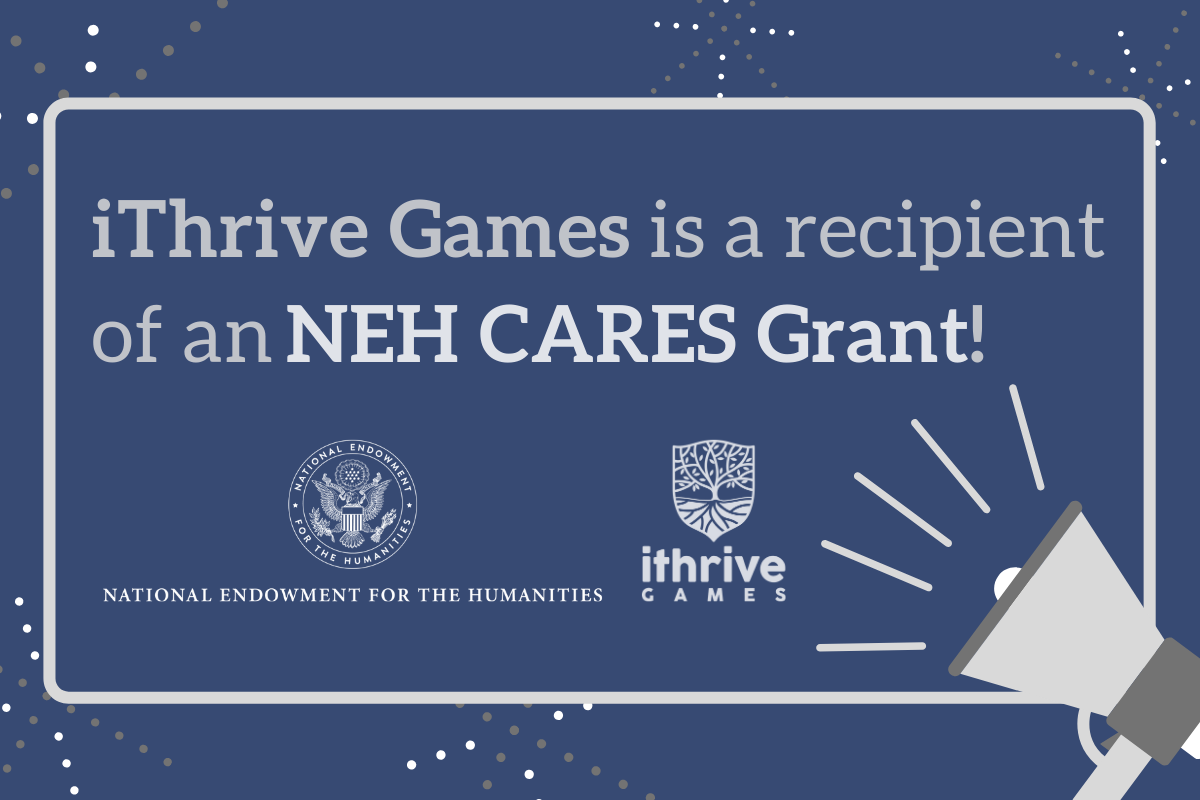
grant
FOR IMMEDIATE RELEASE: June 22, 2020
iThrive Games Foundation Receives NEH CARES Grant for Distance Learning Program
Funds will support the creation of scenarios for iThrive's civics role-playing simulation
BOSTON—iThrive Games Foundation announced that it was awarded a $250,022 National Endowment for the Humanities (NEH) CARES grant. The award will support the expansion of the iThrive Sim program—a library of role-playing simulations that make U.S. government and history come alive for teens. The funds will support the creation of additional scenarios that can be used in distance learning for high school students.
The three scenarios that are funded by the grant embed game-based learning, support social and emotional skill-building in humanities-focused academic content, and are delivered through web-based technology. Created in partnership with the team behind the Situation Room Experience role-playing simulation, the scenarios will engage students in using and interpreting humanities content as they interact in real-time with each other.
"iThrive is honored to receive this prestigious grant from the NEH," said Susan E. Rivers, Ph.D., Executive Director and Chief Scientist at iThrive Games Foundation. "We believe this acknowledgment reflects our mission to provide tools and resources that help teens to thrive and develop perspectives on the big questions of life that only the humanities can deliver, learning to make decisions and take actions for the betterment of the world."
Board Chair and Founder Dorothy Batten believes the grant is an important step in helping teens to thrive while navigating COVID-19.
"Addressing the educational needs of youth and those who work with them is now more important than ever, as the education landscape changes and the pandemic continues," she said.
Visit ithrivegames.org to learn more about iThrive Sim and to learn about project milestones.
###
Media Contact:
Eghosa Asemota
eghosa.asemota[at]ithrivegames.org
ABOUT iTHRIVE GAMES FOUNDATION
iThrive Games Foundation prepares teens to thrive by meeting them where they are and working in partnership towards a world where all have the voice, choice, and agency to reach their full potential. We use games and game design to equip teens with the social and emotional skills they need to be healthy and resilient.
ABOUT THE NATIONAL ENDOWMENT FOR THE HUMANITIES
Created in 1965 as an independent federal agency, the National Endowment for the Humanities supports research and learning in history, literature, philosophy, and other areas of the humanities by funding selected, peer-reviewed proposals from around the nation. Additional information about the National Endowment for the Humanities and its grant programs is available at: www.neh.gov.
Four Ways to Fight the Virus of Misinformation with Media Literacy

These days are likely to find you glued to the news, searching for important information about the spread of coronavirus and the interventions your community is taking in response. Unfortunately, our viral information environment is as difficult as the virus itself. Each day is crowded with coronavirus news stories, opinion pieces, and a flood of data, charts, numbers, and statistics. How can you make sense of it all? Who can you trust? How can you stay informed without being overwhelmed? If you're asking yourself these questions, the teens you care about may be asking them too.
Media literacy—the skill of learning to read and think critically about the media that we consume—can help you manage your consumption of information related to the virus. We have championed this skill through our work on iThrive Sim: Constitutional Crisis, a tech-enabled simulation game that teaches high-school students civics and skills such as media literacy, decision-making, and social and emotional awareness. We hope you'll use these tips and share them in discussion with the young people in your life to turn the news cycle into a learning opportunity.
1. Manage Your Consumption
Stories that stoke fear or elicit a powerful emotional response keep us glued to the news, so news outlets are serving up plenty of content that will heighten our emotions. While there are certainly important news developments throughout the day, limiting your intake of news can help to keep you from riding a rollercoaster of emotions. News outlets aggregate the most important information for major morning and night updates. Stay informed by choosing one to two times a day to get new information—perhaps a morning update, or dip in for the 6 pm news—without missing out on important updates.
2. Use Trusted Sources
There is an avalanche of media related to coronavirus. How do you know where to turn? Recent years' talk of fake news has undermined the public's trust in media outlets. Additionally, major cuts in newsrooms across the country mean there are fewer reporters out on the beat chasing down information. Despite these challenges, there are still a number of news outlets doing an excellent job reporting and writing about coronavirus. Most notably, The New York Times and the Washington Post have been working hard to cover the coronavirus story in-depth, accurately with lots of facts and data to support their reporting. Both outlets have also removed their paywall, giving all people equal access to important information. The BBC continues to be one of the best news sources for world coverage. Using these news outlets well-staffed with top journalists will help ensure the news you do consume is trustworthy.
3. Separate New Stories from Opinion Pieces
Beyond gold standard reporting, there is a ton of unsourced information and opinion. Make sure you distinguish between reported pieces, which use sources and facts to support ideas, from opinion pieces, where people substitute their own judgment for truth. Opinion pieces can help us engage with a story by learning what others think or believe, but we should be sure to evaluate what we hear or read carefully before believing it ourselves, or passing a piece on. Beware, also, of confirmation bias: we tend to take opinions that align with our own preconceptions to be more truthful. Consuming information from a variety of sources that don't always agree with each other or with you can ensure you have access to other perspectives worth considering.
4. When In Doubt, Fact Check
The internet age has provided us access to millions of media outlets but has also facilitated the spread of falsehoods, misinformation, and conspiracy theories. Yes, there is such a thing as fake news—often propagated by outlets seeking to cash in on clicks, or spreading falsehoods for their own ideological ends. If a story sounds outlandish, exaggerated, or flat out wrong it's worth checking it out. Mainstream news stories, Presidential press conferences, and public statements by officials related to coronavirus can be checked at the Annenburg Center's Factcheck.org, an excellent source for evaluating news. Chain emails, conspiracy theories, and alarmist social media posts can be checked at snopes.com, long a trusted source for evaluating viral content for accuracy. Fact-checking the news you consume can ensure you are getting the story straight and can help keep you from passing on the virus of misinformation.
Talk About It
Media literacy is a key skill for both teens and adults that is more important now than ever. Families at home can use these simple tips to engage teens in a conversation about managing news consumption on the coronavirus crisis and to help build media literacy skills that will produce learning that will last long after quarantine.
This media literacy piece was written by Susan X. Jane, Senior Director of Organizational Strategy at the iThrive Games Foundation. Check out her latest article on how iThrive Games' Game Design Studios create rich spaces for connection, learning, systems thinking, and activating social change.
Expanding Our Vision for Civics Education: iThrive Sim Intersects Play, Civics, & Social and Emotional Learning
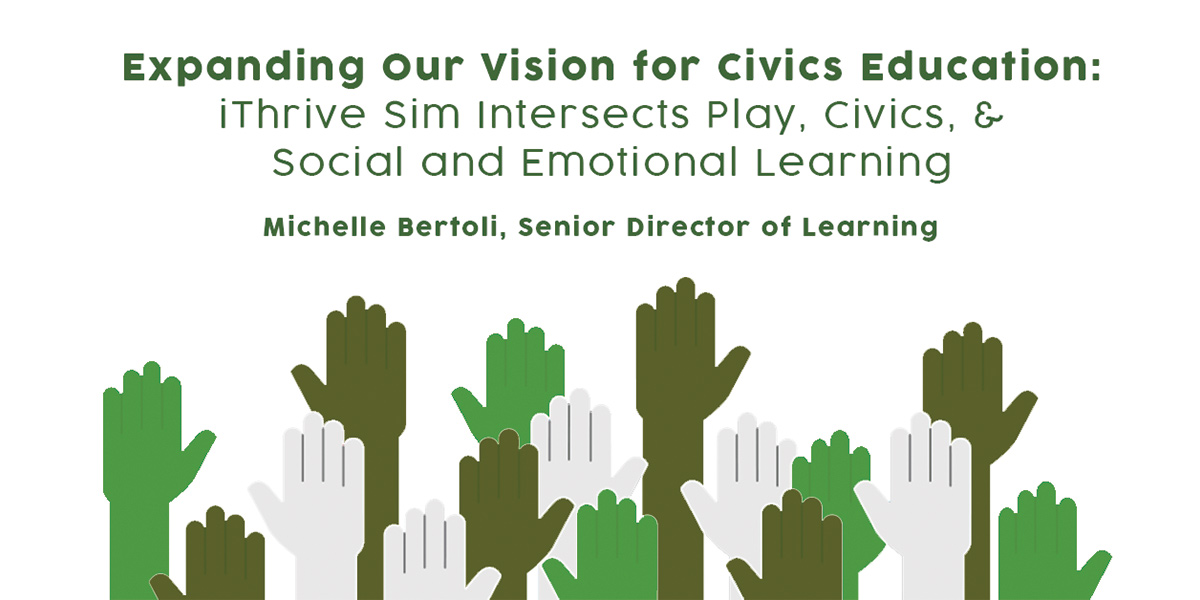
Research has shown that engagement with civics has benefits for individuals and communities as a whole. Yet countless column inches have been used to decry the current state of civics education. Concurrently, high school students across the country are asking "Why should I care?"
Teachers know that the secret sauce in any great civics course is to create the conditions to help young people answer for themselves the question of why they should care and provide them with the tools to effectively and constructively engage.
But how do we inspire teens to engage? What would that look like? Do we have a practice ground? And even when students have information available to them, what tools have we given them to discern whether that information is fact or fake news?
iThrive Games Foundation and the Ronald Reagan Presidential Library and Museum have partnered to create iThrive Sim: Constitutional Crisis, a live-action role-playing game that can be used in place of traditional civics teaching methods. The game, which is based on the Situation Room Experience, allows participants to play unique roles, which creates an experience of immersion in the scenario from a specific perspective. As players move through the scenario, they draw on social and emotional skills while they make decisions, demonstrate critical thinking, absorb information, navigate complex ethical landscapes, and communicate with peers.
This mixture of gameplay, civics, and social and emotional learning is highly engaging to students. Here's how:
- Gameplay: A critical component of iThrive Sim: Constitutional Crisis is embodied, experiential learning. By engaging in a simulation, teens don't just imagine or talk about making decisions under pressure, they experience it. Look at the face of any teen playing an intense video game: the tension is real, even though the stakes are fictional. In iThrive Sim: Constitutional Crisis, teachers see their students practice regulating their emotions, collaborating with others, exercising curiosity, and weighing competing priorities as they make difficult decisions. Students put into practice the social and emotional skills essential for civic engagement: self-awareness, empathy, collaboration, curiosity, and courage.
- Civics: Through iThrive Sim: Constitutional Crisis, students begin to perceive themselves as decision-makers here and now, with the power to impact those around them. They don't have to wait to "be a decision-maker;" they already are. Their actions and decisions, even before they can vote, help to create the communities of which we're all a part. NOT acting is still taking action. What's more, iThrive Sim: Constitutional Crisis provides a memorable shared experience for students to revisit as a frame of reference to scaffold future knowledge.
- Social and emotional learning: At its heart, democracy is about decision-making. The role of a member of the public in our democracy requires choosing to combat bias to build empathy for the experience of fellow human beings, building self-efficacy to combat apathy, and daring to make complex decisions with consequences for individual liberty and the larger social good. By acknowledging and highlighting the social and emotional skills inherent to responsible citizenship, we seek to engage students not just by supporting their understanding of the mechanics of government, but of themselves, their identities, values, and communities. We seek to provide students tools to engage with constructive decision-making techniques and to reflect deeply on how their decision-making affects others. Rather than telling them what is important to them, we engage students in considering these questions for themselves so that they are capable of translating their values into action.
At the heart of this unit is the acknowledgment that the decisions we make as individuals have ripple effects in our families, our communities, our democracy. Students who engage in iThrive Sim: Constitutional Crisis see the impact of those decisions and have the opportunity to learn from them as they consider how to fully engage as young citizens in a democracy they are shaping and will continue to reshape throughout their lives as decision-makers.
To learn more or to pilot iThrive Sim: Constitutional Crisis, email us at contact@ithrivegames.org.
A Window into Playtesting with Teens
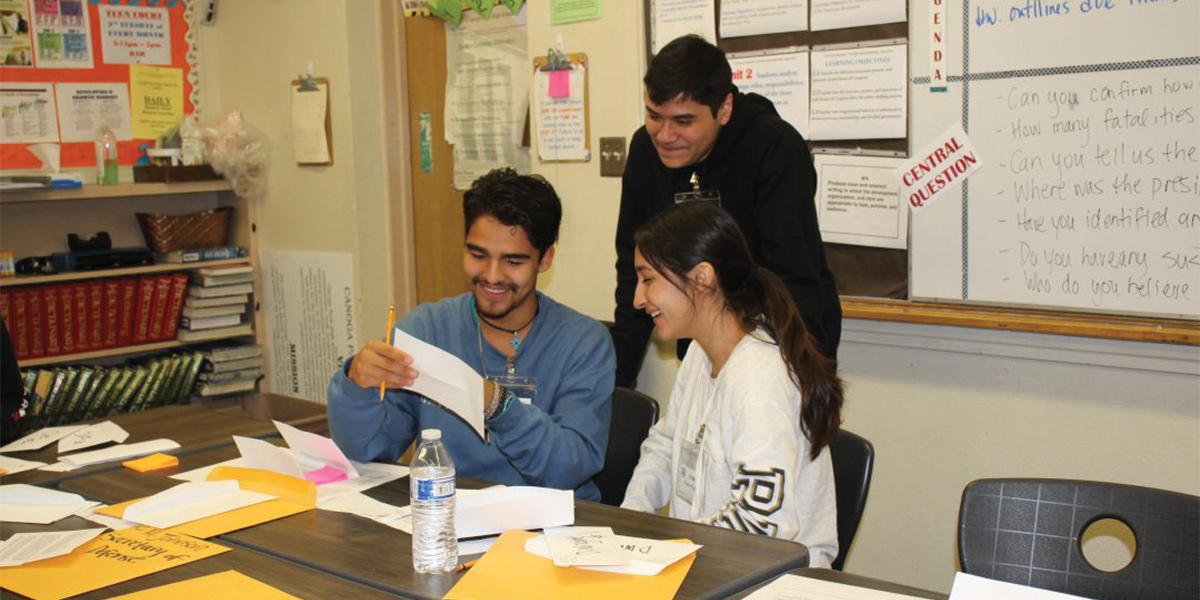
This week at iThrive, we had the opportunity to meet teens where they are and engage them in civics education by visiting US history and government classes at North Hollywood High School, Canoga Park High School, and Santa Paula High School in the Los Angeles area. The classroom experience is being developed in partnership with the Reagan Presidential Library. The students offered bright and bold feedback during their playtest of the iThrive Sim: Constitutional Crisis, our immersive game-based scenario in which teens engage in civics education and play critical roles during a constitutional crisis—from government officials to reporters, residents to law enforcement personnel.
Playtesting—the process of gaining insight into whether the game design meets the player experience you are attempting to create—is central to our approach at iThrive.
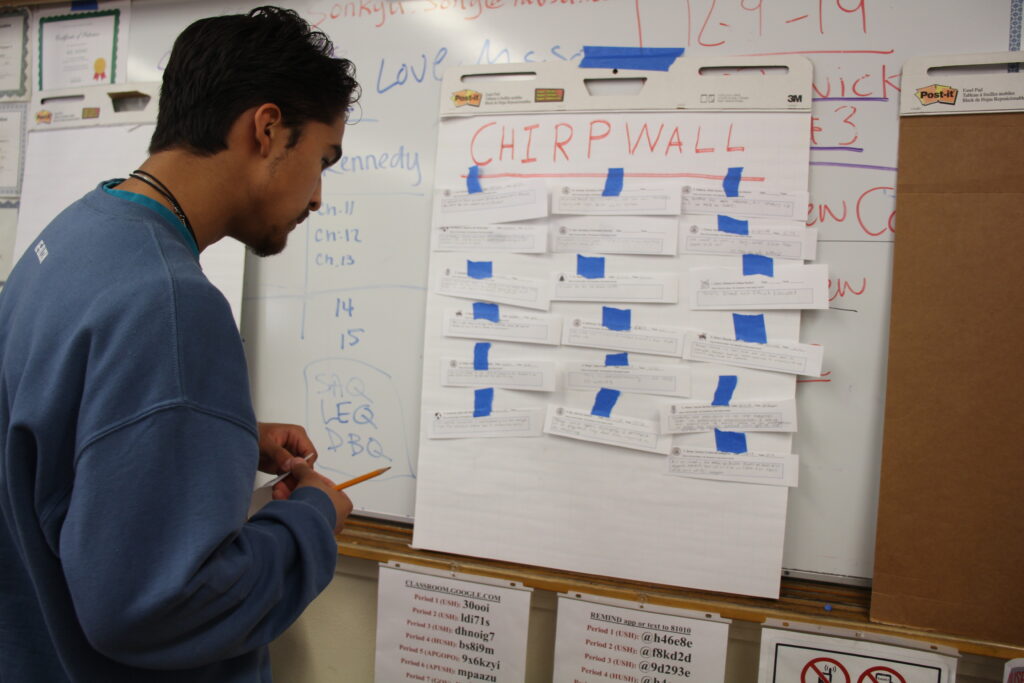
"It's how we make sure teens are at the center of our work," said Jane Lee, Senior Director of Operations and Mental Health.
For this week's playtest, the students played a paper version of the usually tech-enabled civics education scenario to explore the mechanics of the game. Their feedback provided useful insights on topics such as participant interactions, game narrative and content, reading comprehension, and the physical environment's impact on the game.
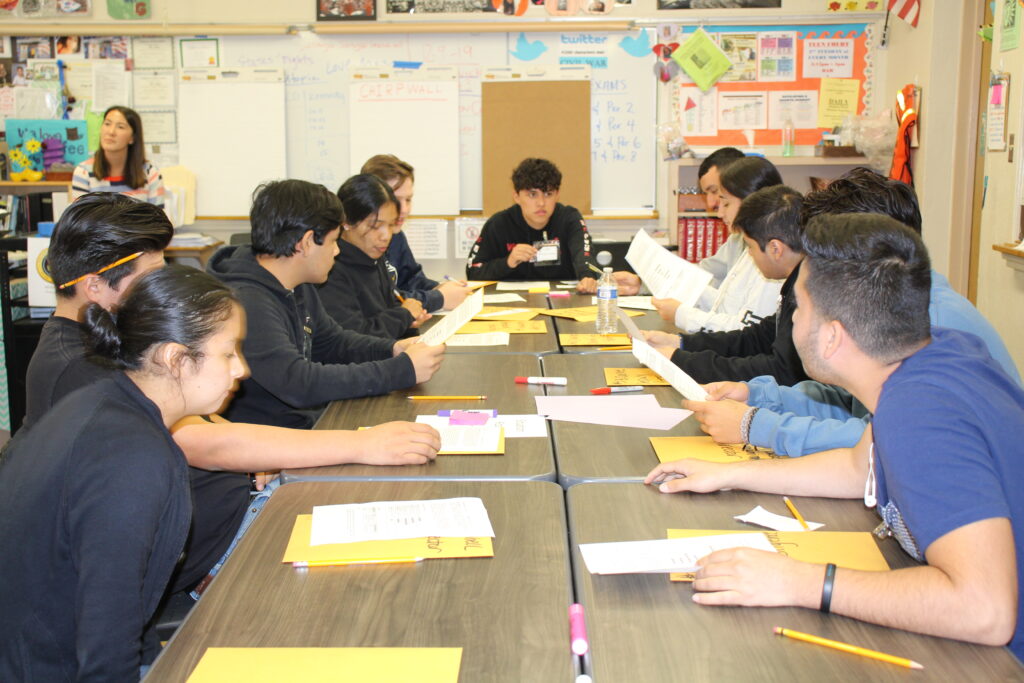
"Paper prototyping allows you to playtest early in the production cycle so you can iterate and make significant changes based on the teens' feedback," said Lee. "By that principle, we are engaging in a form of co-design with teens. It's important that they are part of the design at every stage, so we aren't making assumptions about what they know and what they want to learn."
The civics education, role-playing game, which is in software development, will be available for classrooms in the fall of 2020. If you'd like to playtest with iThrive, please contact us.
